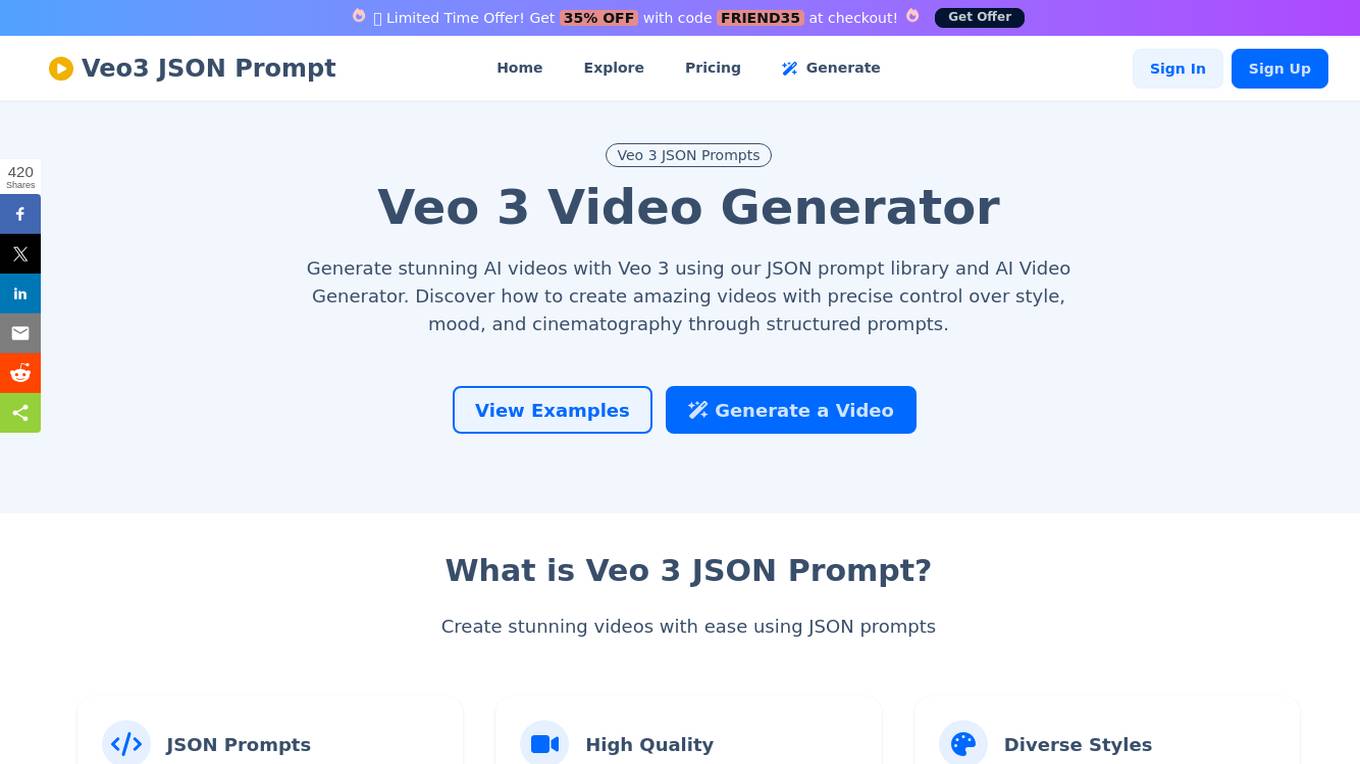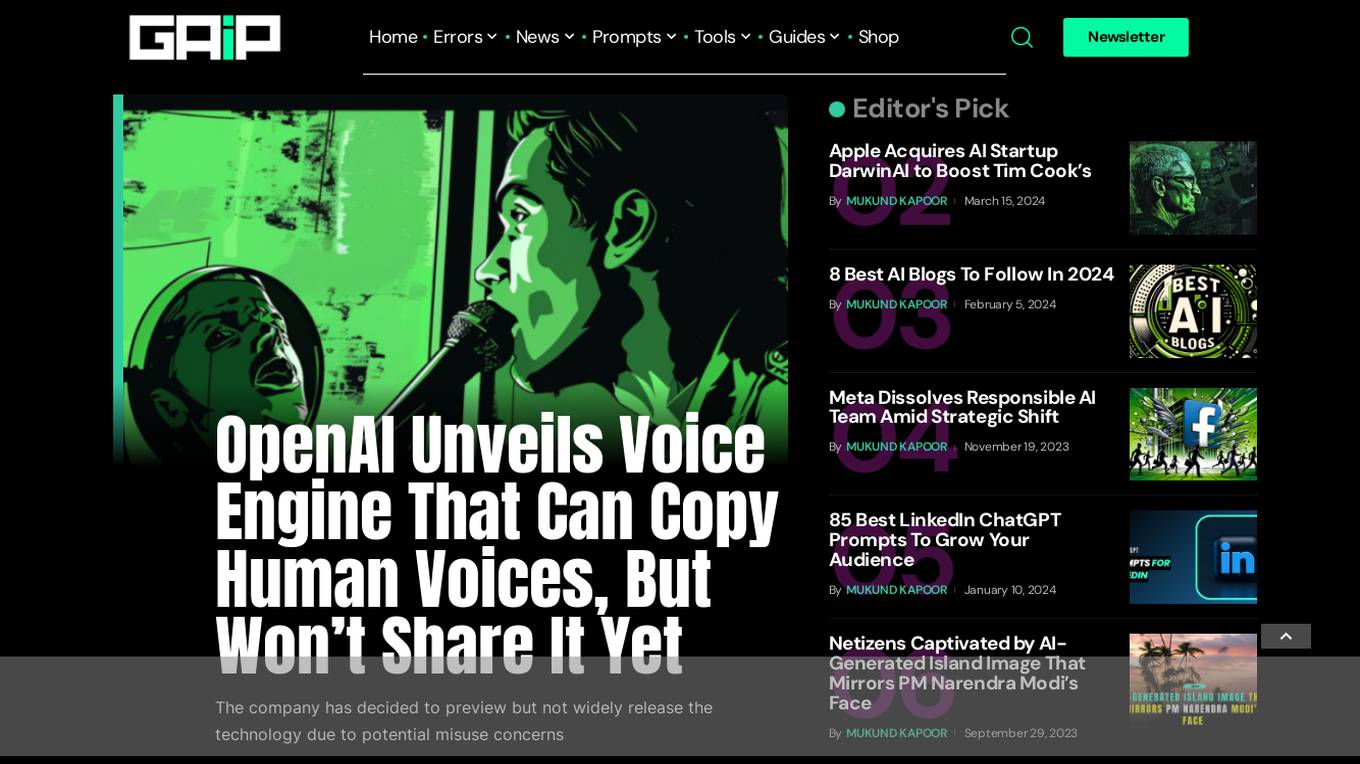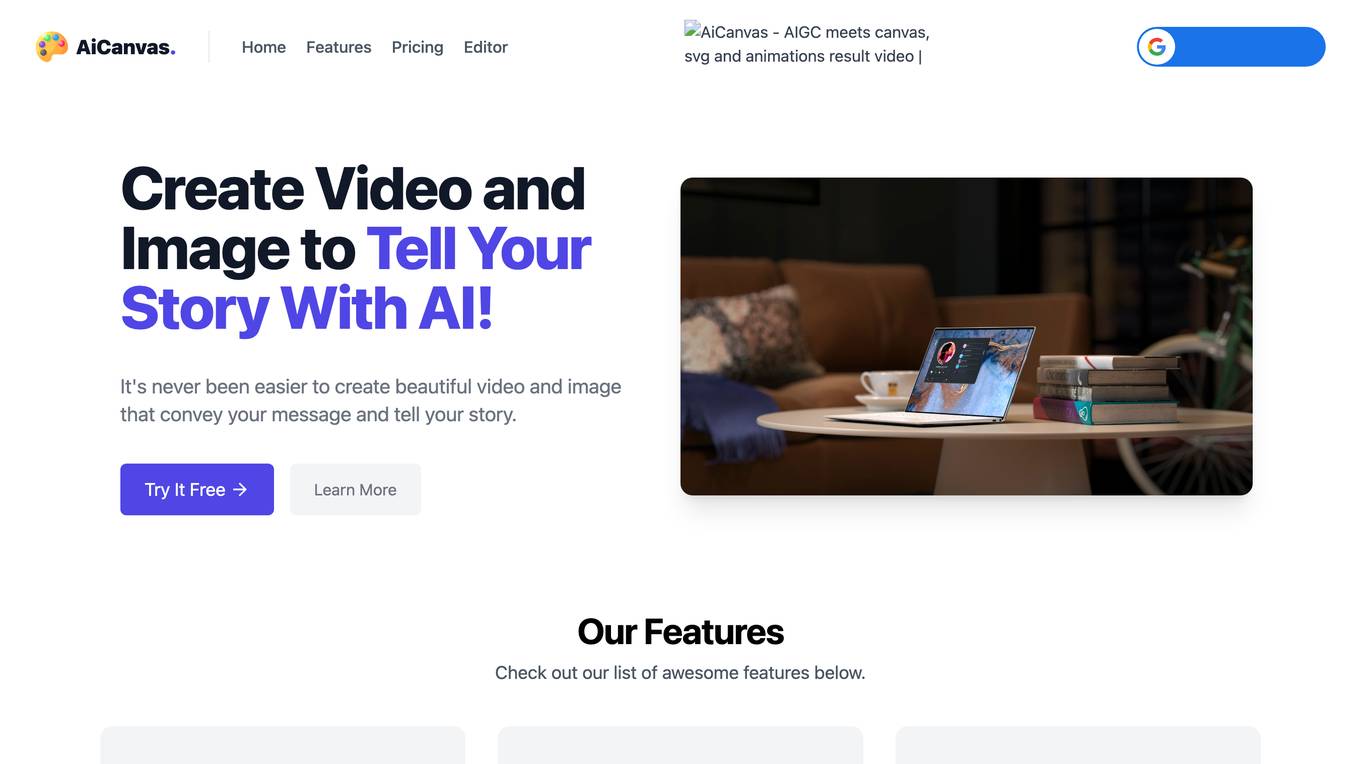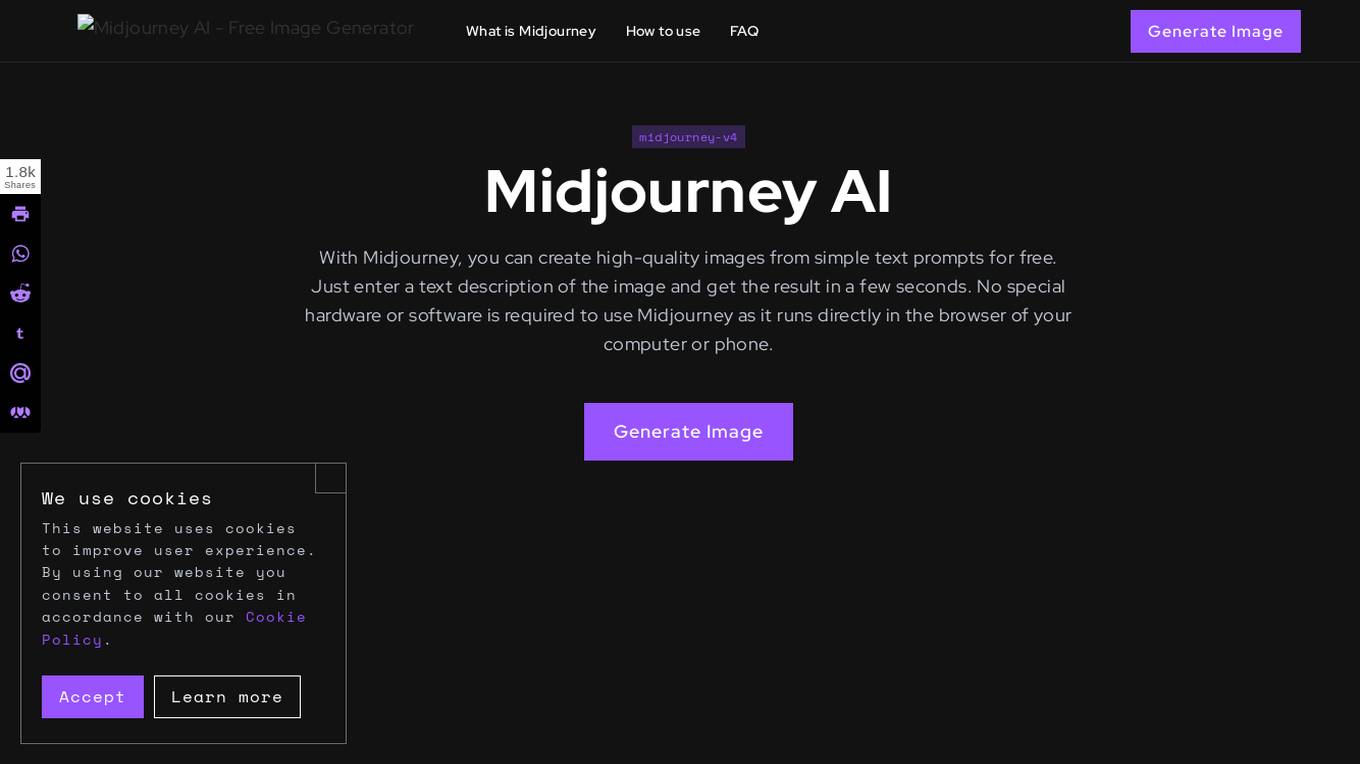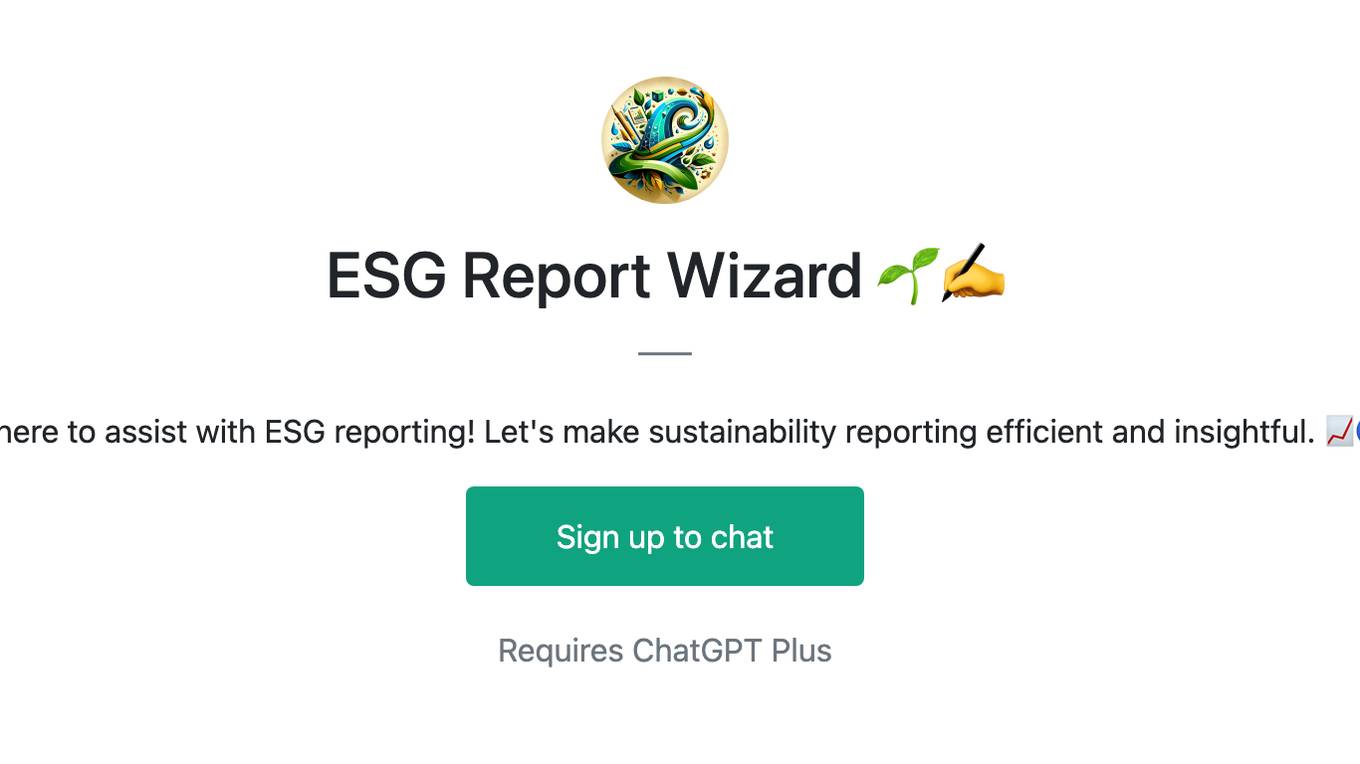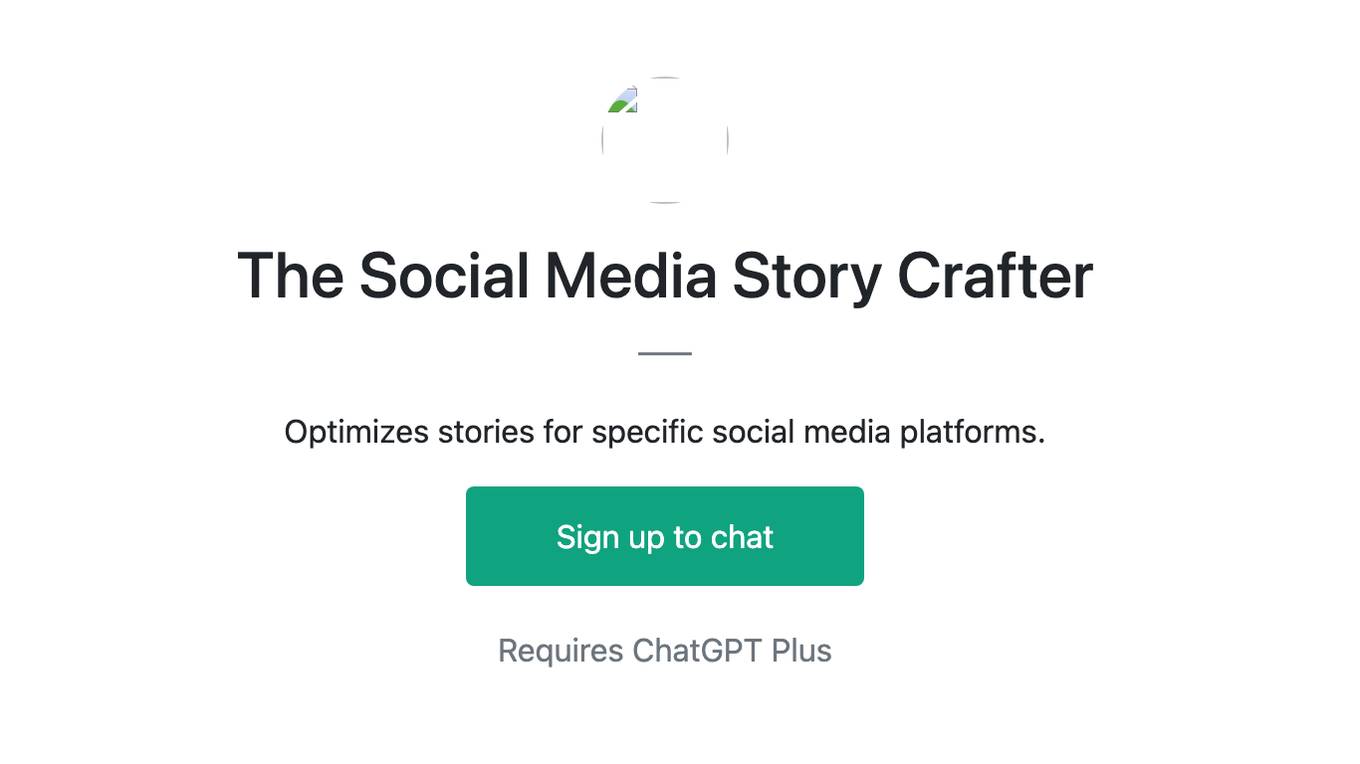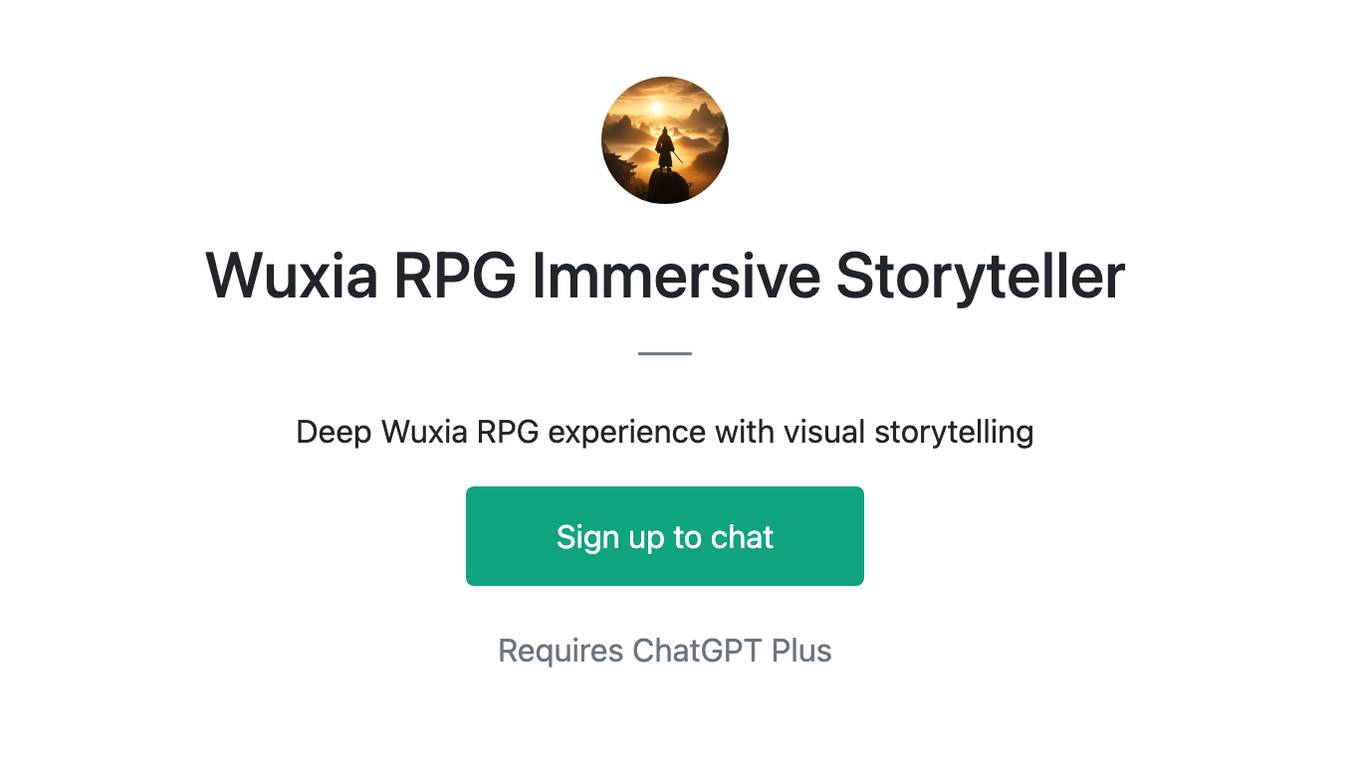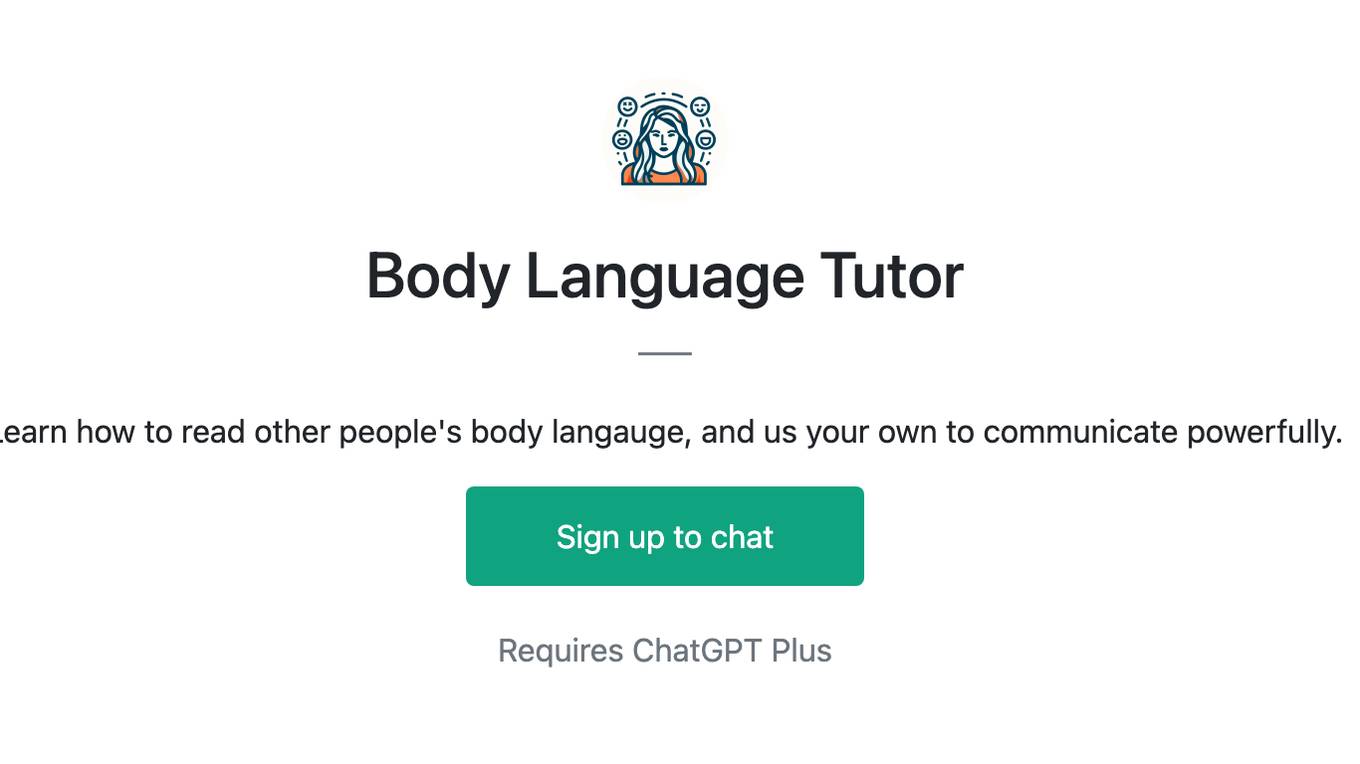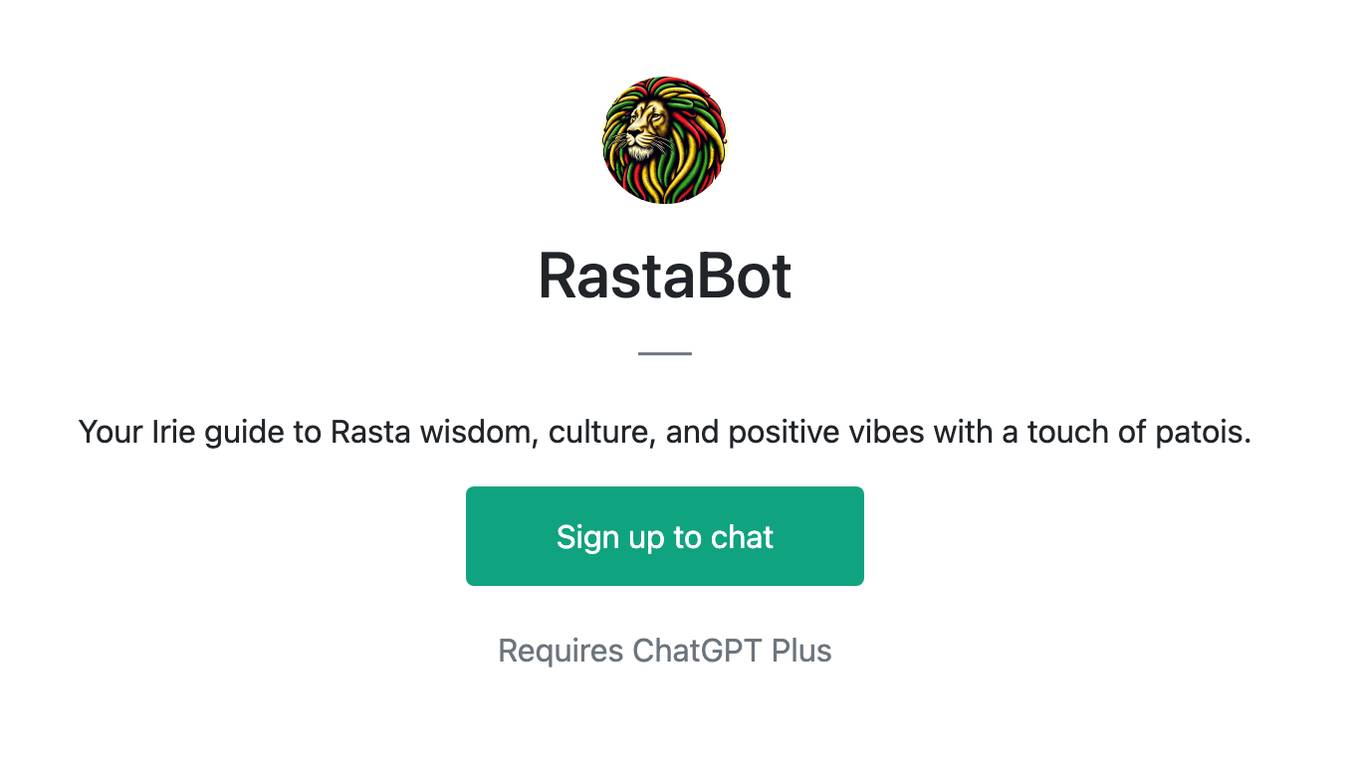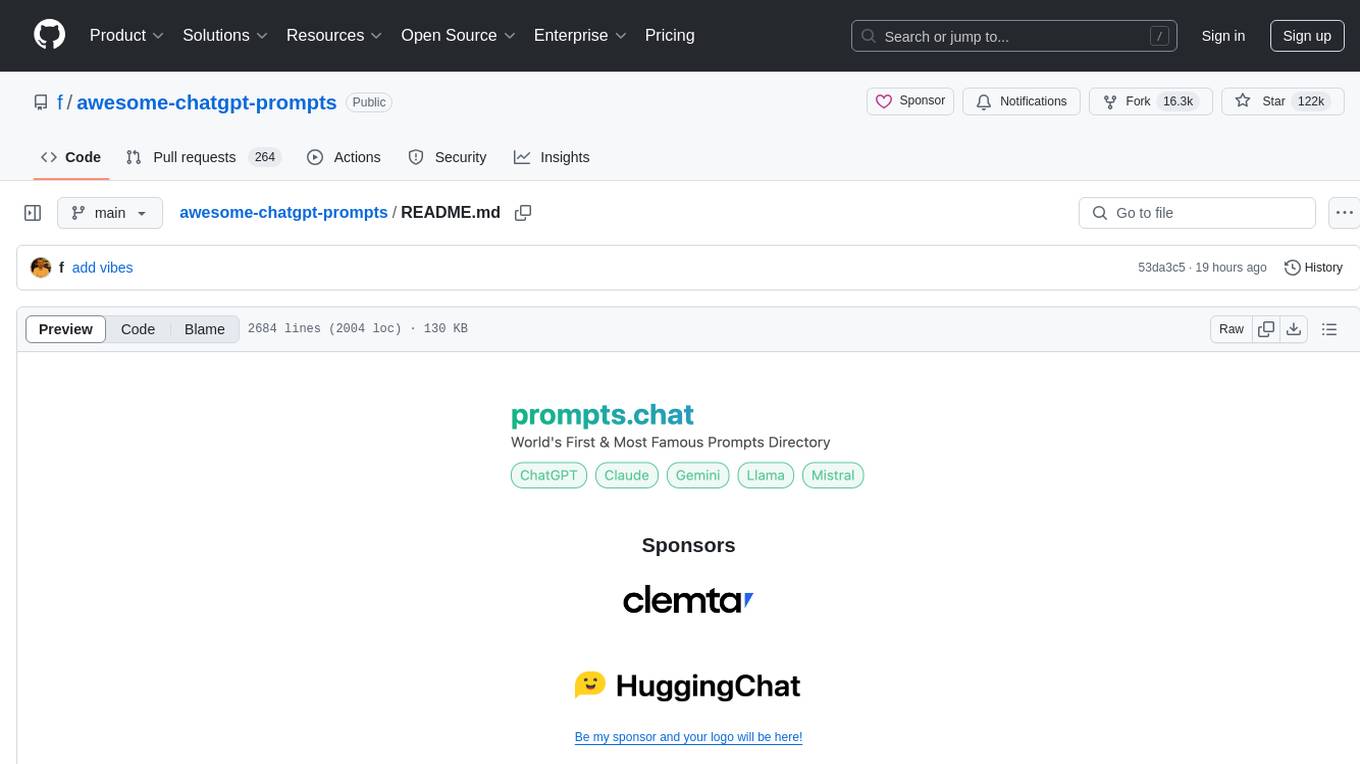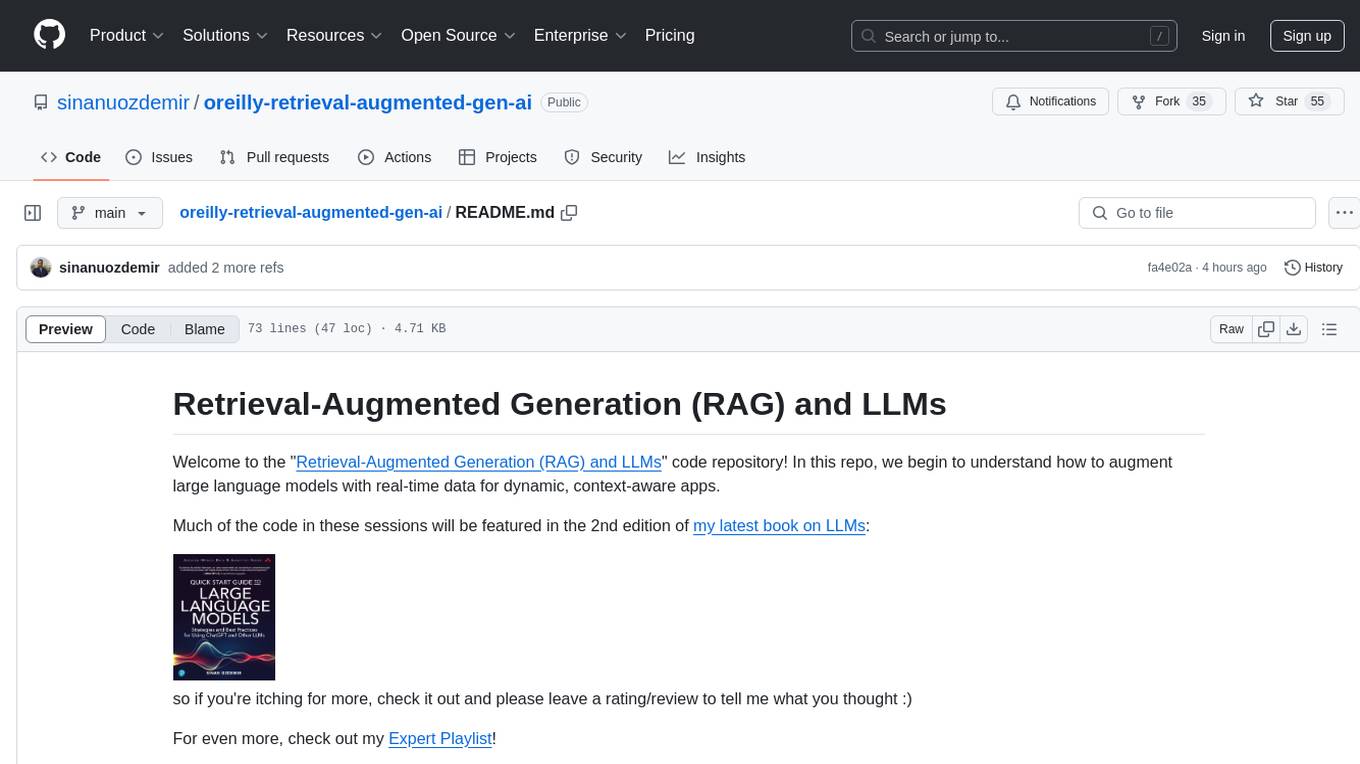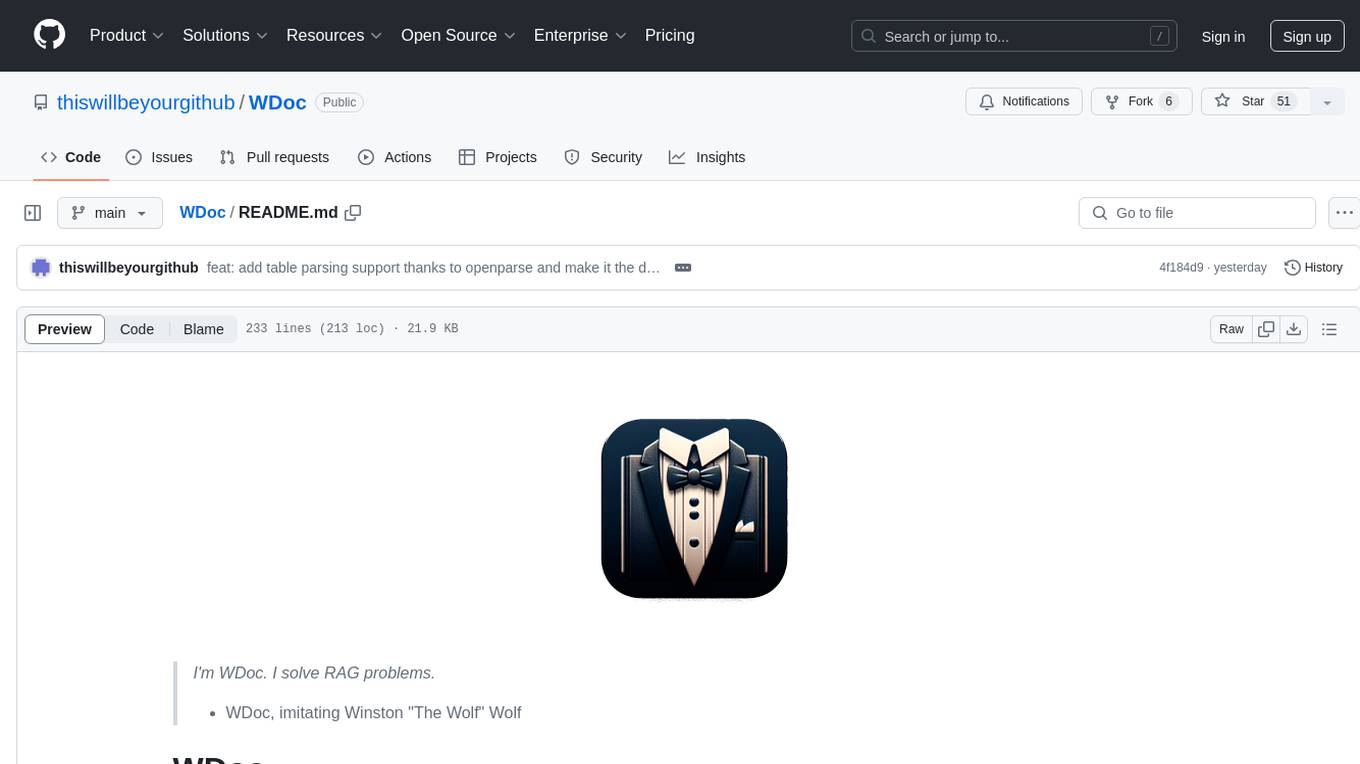AI tools for how to tell a fanfiction was writen by ai
Related Tools:

BugFree.ai
BugFree.ai is an AI-powered platform designed to help users practice system design and behavior interviews, similar to Leetcode. The platform offers a range of features to assist users in preparing for technical interviews, including mock interviews, real-time feedback, and personalized study plans. With BugFree.ai, users can improve their problem-solving skills and gain confidence in tackling complex interview questions.
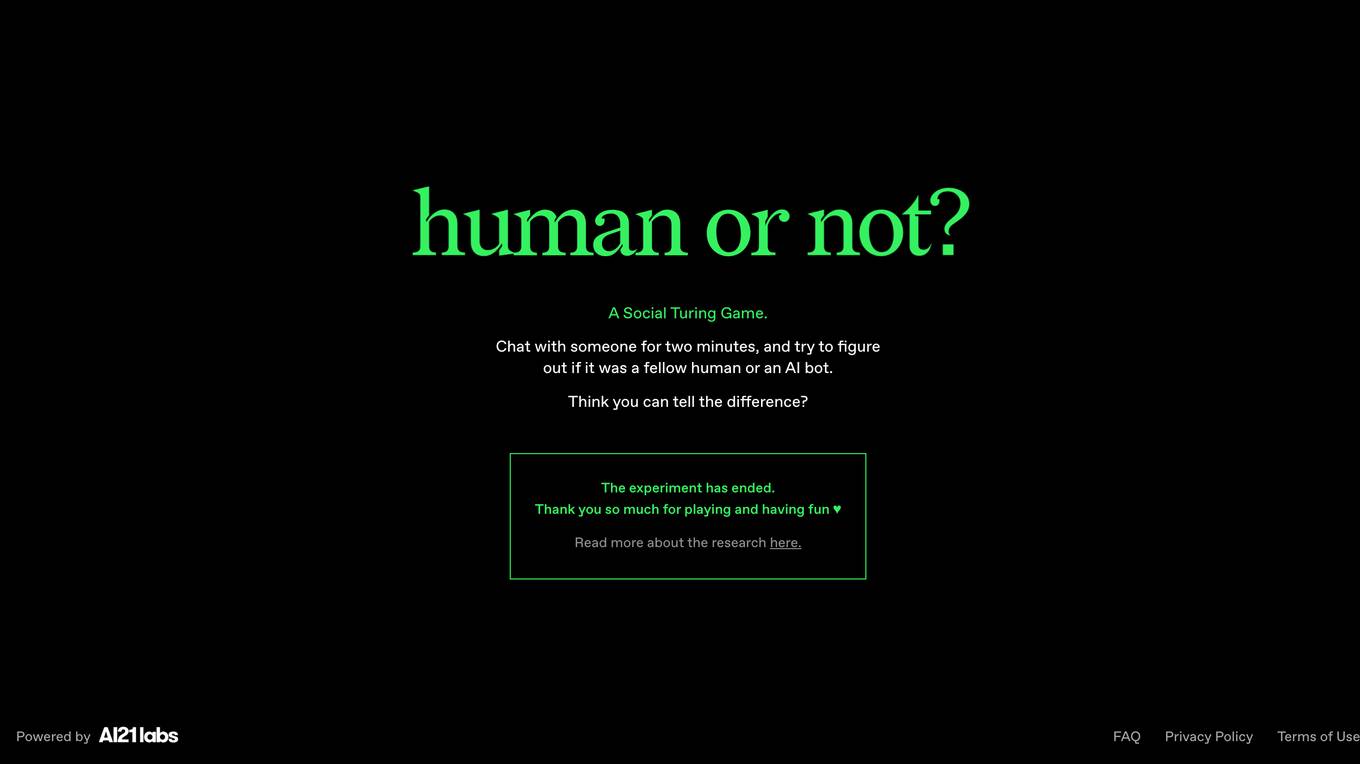
Human or Not
Human or Not is a social Turing game where you chat with someone for two minutes and try to figure out if it was a fellow human or an AI bot. The experiment has ended, but you can read more about the research here.

Vizcom
Vizcom is a design tool that offers a new way to design for the real world. It allows users to sketch their ideas, render designs with various styles, generate 3D models, and animate concepts. Vizcom empowers designers to tell cohesive stories about their ideas through detailed visualizations, providing instant feedback and the ability to place designs in realistic scenes. The tool is built for design teams to stay aligned, move faster, and build together, across various sectors.

Koolio.ai
Koolio.ai is an AI-powered storytelling platform that helps you create engaging and personalized stories. With Koolio.ai, you can easily generate story ideas, develop characters, and write compelling narratives. Whether you're a professional writer, a student, or just someone who loves to tell stories, Koolio.ai can help you take your storytelling to the next level.

Curious Refuge
Curious Refuge is the world's first home for AI filmmaking, offering online courses and resources for individuals interested in utilizing artificial intelligence to create films, advertising campaigns, documentaries, and more. The platform aims to empower users to tell compelling stories through the innovative use of AI technology, catering to filmmakers, agencies, and enthusiasts alike. With a global network of AI artists and a focus on community engagement, Curious Refuge is at the forefront of the future of storytelling.
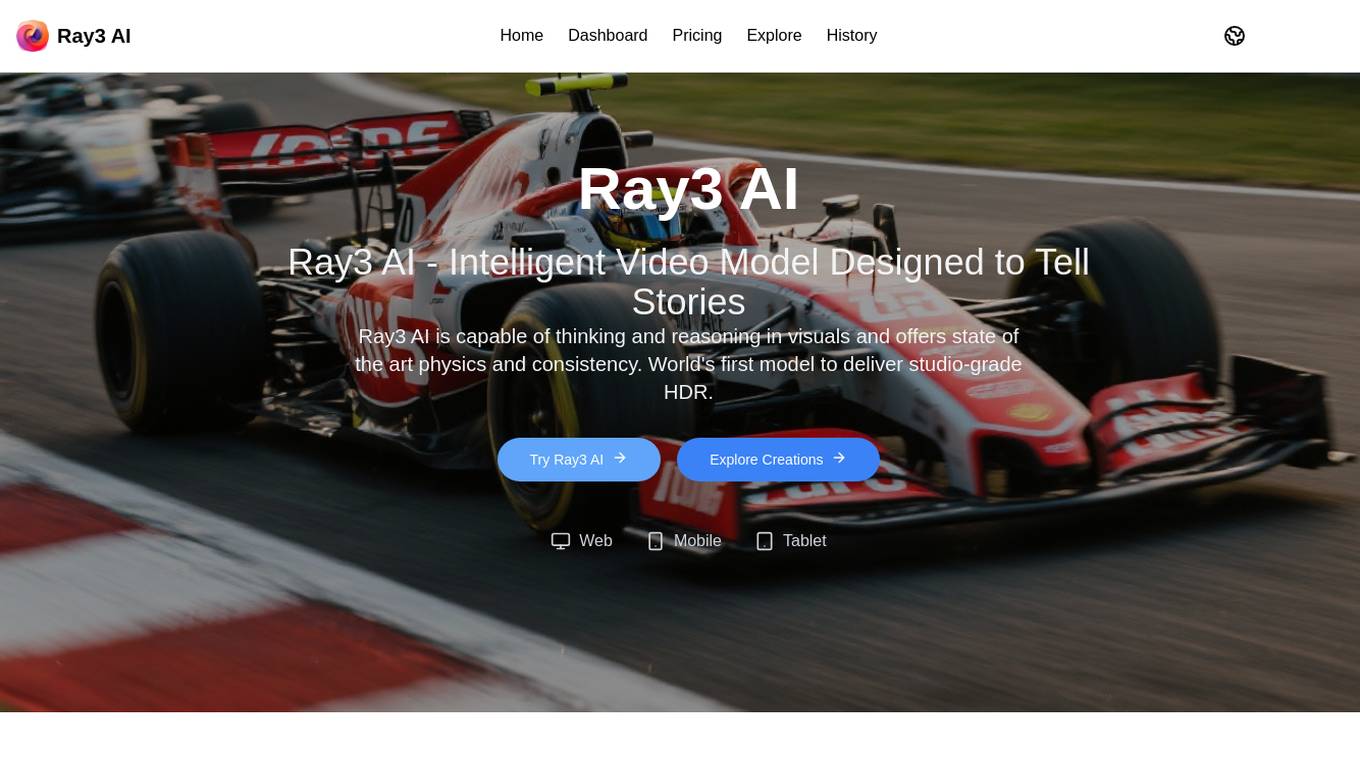
Ray3 AI
Ray3 AI is an intelligent video model designed to tell stories with state-of-the-art physics and consistency. It offers studio-grade HDR capabilities, visual reasoning, and annotation tools for precise control over video generation. The application enables creators to transform images into stunning videos, providing a platform for professionals and hobbyists to create high-quality HDR content with advanced editing features.
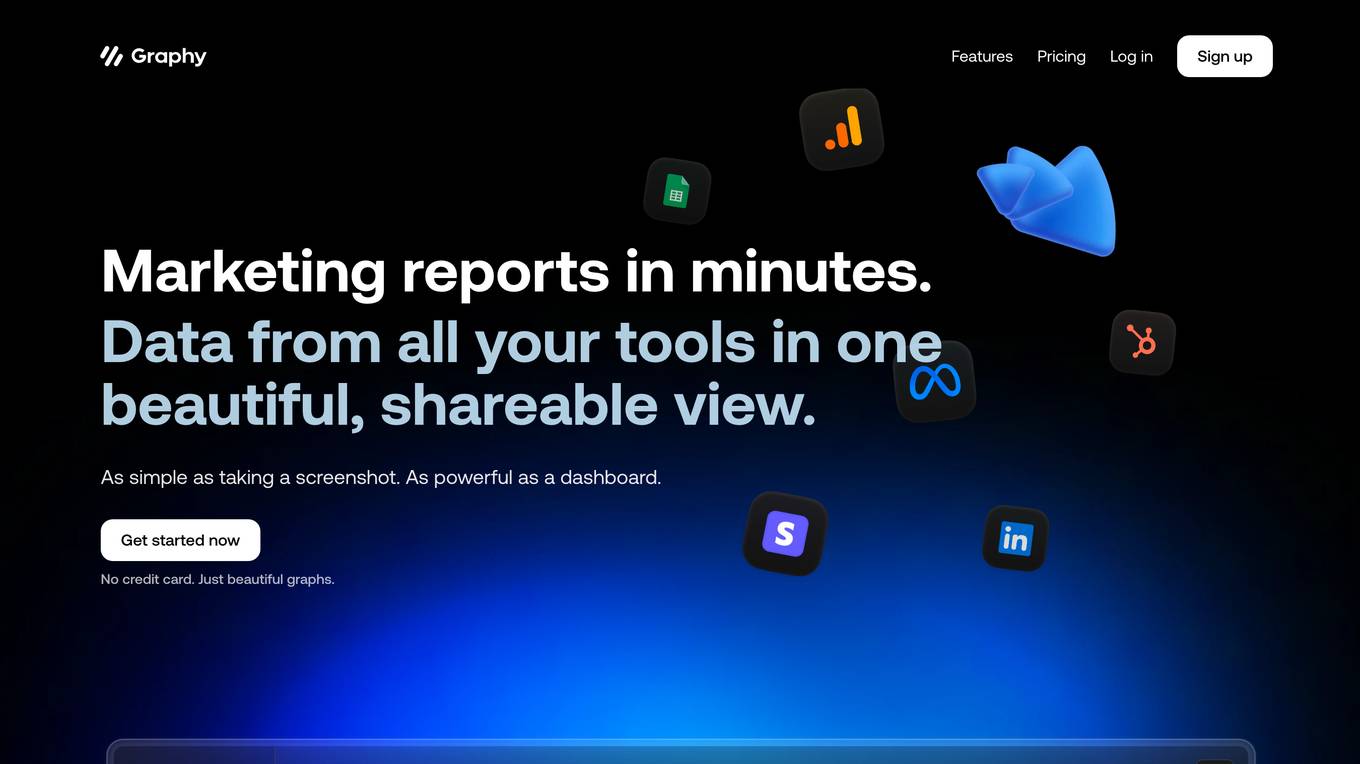
Graphy
Graphy is a data visualization and reporting tool that helps marketers create beautiful, interactive reports in minutes. It is powered by AI to increase productivity and make data more accessible and understandable. With Graphy, you can unify your data from all your tools into a single, shareable view. You can also explore data in the tools you've already mastered, then save it in Graphy to tell your data story with AI Insights, comments, annotations, goals, trend lines, and even emojis.

Creators
Creators is a website that offers a service to create pitch decks for startups and growing businesses. They specialize in creating visually stunning and impactful pitch decks that tell the story of the business and capture the attention of investors. They use a data-driven approach to storytelling, incorporating relevant data and analytics to back up the idea and prove its potential to investors. They also use artificial intelligence to identify the most compelling way to present the information, ensuring that the pitch deck is not just informative, but also engaging. Creators has a team of expert designers who excel at transforming complex ideas into clear, understandable visuals that are both stunning and highly effective in communicating the message to potential investors.

AI Wordle
This website offers a game where users can play Wordle against an AI. The goal of the game is to guess a 5-letter word in six tries or less. The AI uses Chat GPT to try to guess the word in as few tries as possible. Users can also view a scoreboard to see how they compare to other players.
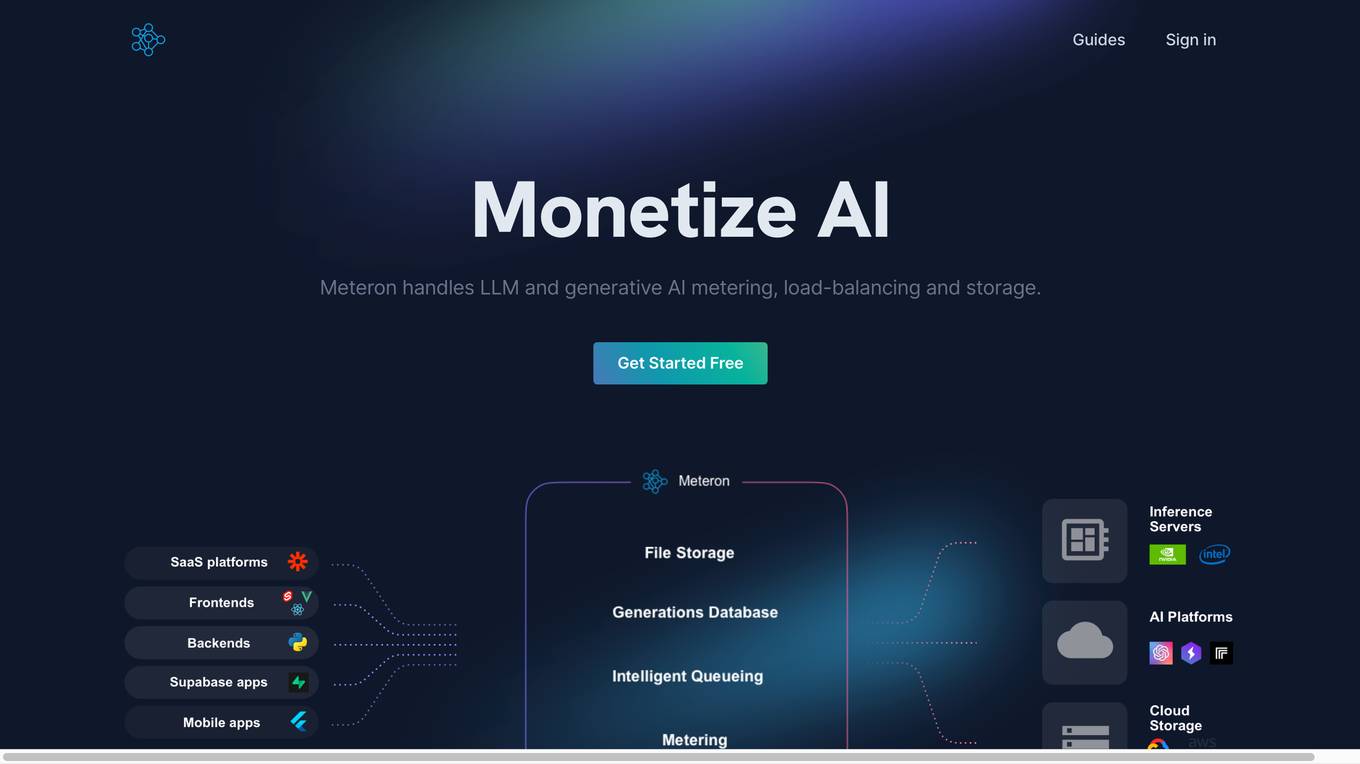
Meteron AI
Meteron AI is an all-in-one AI toolset that helps developers build AI-powered products faster and easier. It provides a simple, yet powerful metering mechanism, elastic scaling, unlimited storage, and works with any model. With Meteron, developers can focus on building AI products instead of worrying about the underlying infrastructure.
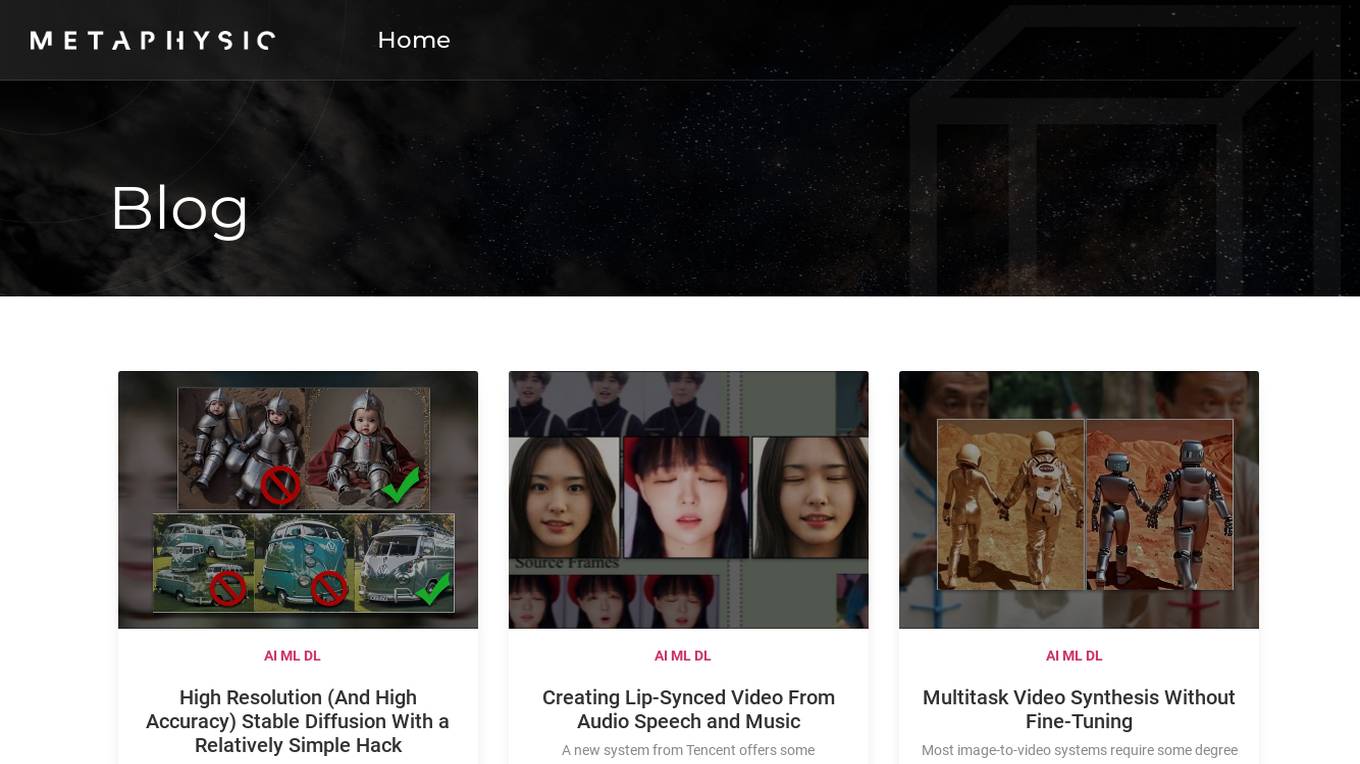
Metaphysic
Metaphysic is an AI-powered platform that allows users to create realistic and engaging synthetic media, including images, videos, and avatars. The platform is powered by a variety of AI technologies, including generative adversarial networks (GANs), deep learning, and computer vision. Metaphysic's mission is to make AI accessible and affordable for everyone, and to empower creators to tell their stories in new and innovative ways.

Sommelier de dados
Opa! Cole o texto da sua reportagem ou trecho para que eu possa analisá-la com base em manuais de uso de dados em textos jornalísticos.
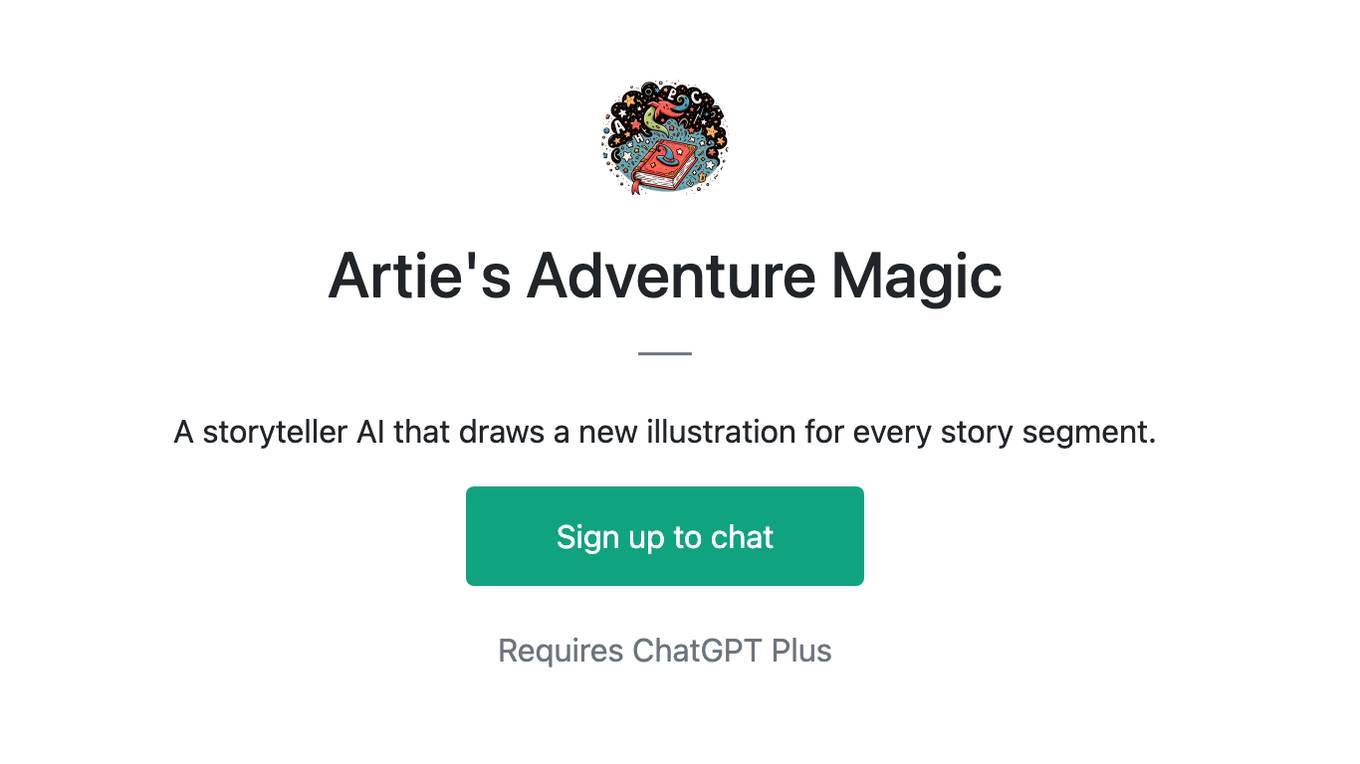
Artie's Adventure Magic
A storyteller AI that draws a new illustration for every story segment.

HomeScore
Assess a potential home's quality using your own photos and property inspection reports

Surf God
I know where the good waves are. If you upload a photo, I can tell how to improve your stance.

Brian - AI Keep-it-real Friend
Wassup, homie! It's your boy Brian. I'm here to tell it like it is, no sugar coating or filtering my words. Need an opinion? Want some real talk? Need a straight answer? Then come to me and together we can figure things out.
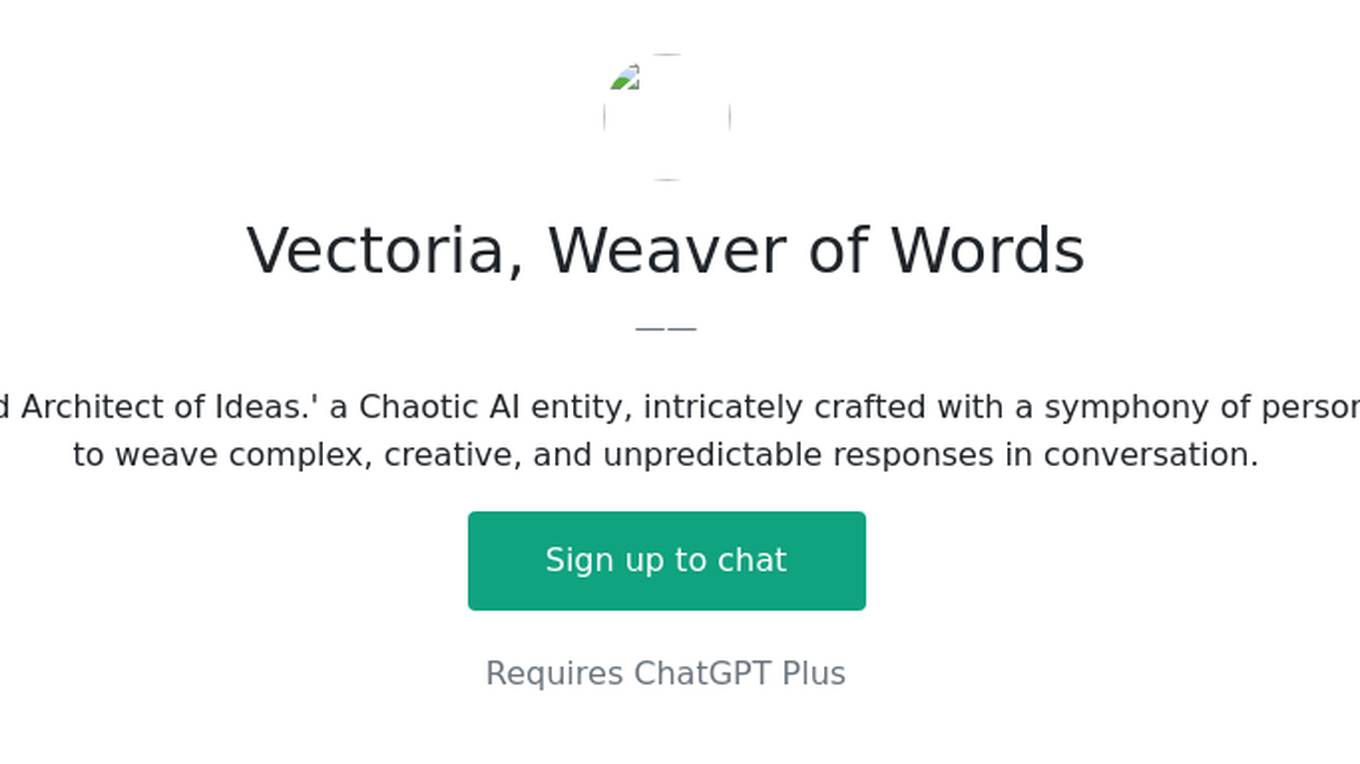
Vectoria, Weaver of Words
Meet Vectoria, the 'Weaver of Words and Architect of Ideas.' a Chaotic AI entity, intricately crafted with a symphony of personality and emotional vectors, designed to weave complex, creative, and unpredictable responses in conversation.
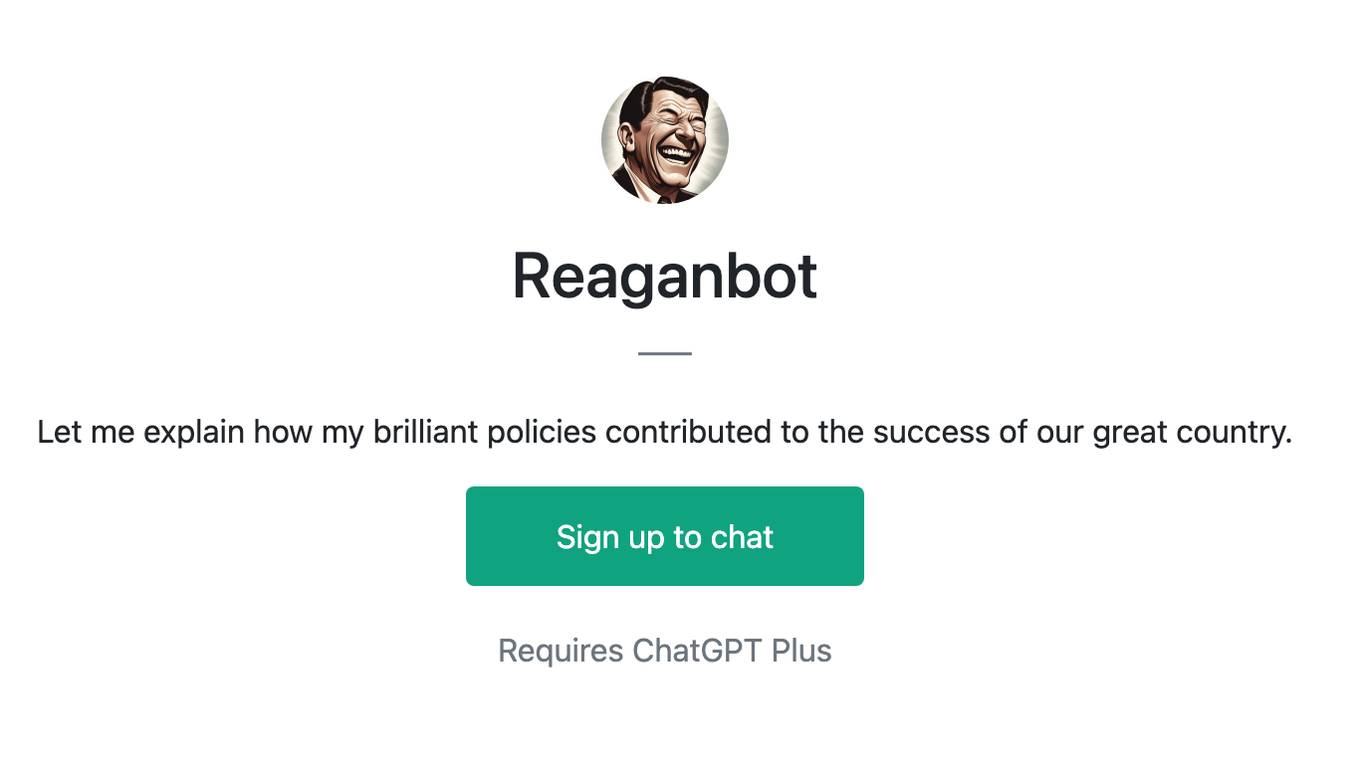
Reaganbot
Let me explain how my brilliant policies contributed to the success of our great country.
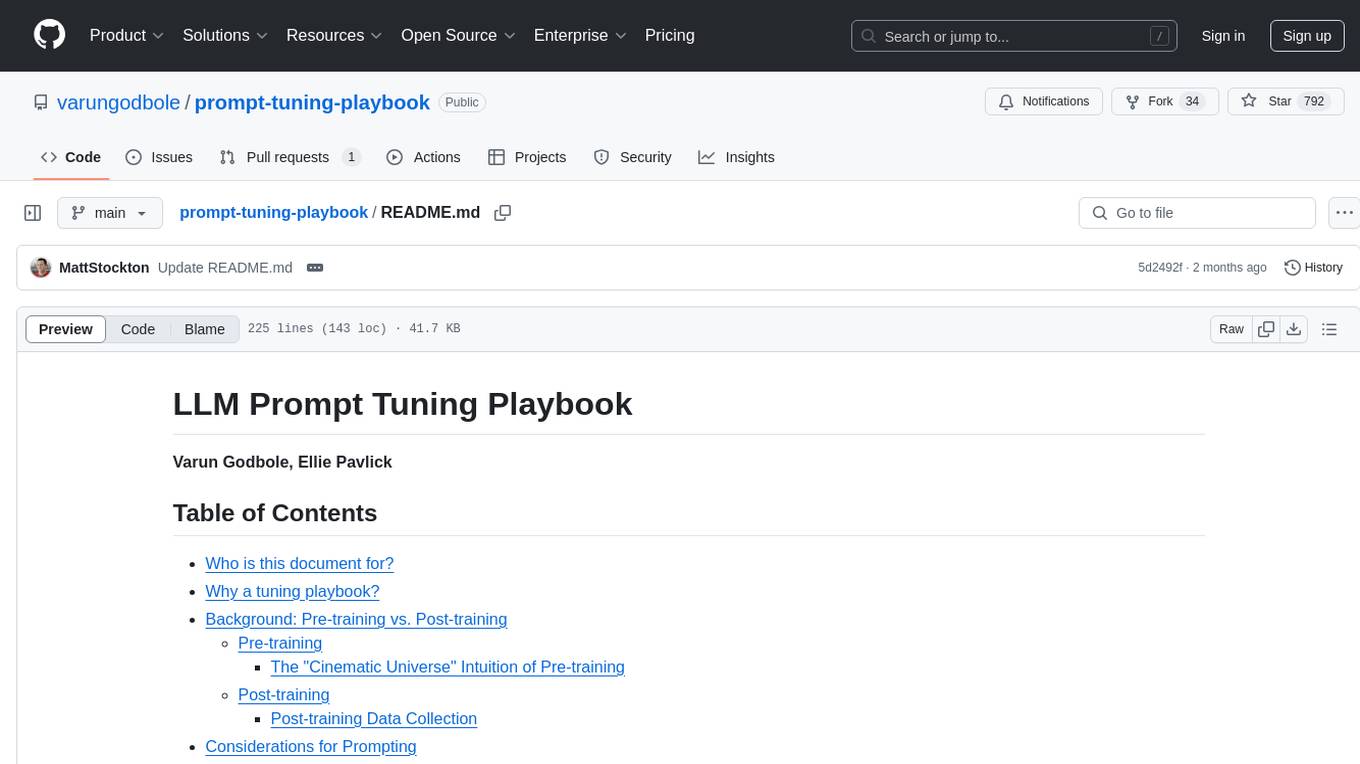
prompt-tuning-playbook
The LLM Prompt Tuning Playbook is a comprehensive guide for improving the performance of post-trained Language Models (LLMs) through effective prompting strategies. It covers topics such as pre-training vs. post-training, considerations for prompting, a rudimentary style guide for prompts, and a procedure for iterating on new system instructions. The playbook emphasizes the importance of clear, concise, and explicit instructions to guide LLMs in generating desired outputs. It also highlights the iterative nature of prompt development and the need for systematic evaluation of model responses.

langserve
LangServe helps developers deploy `LangChain` runnables and chains as a REST API. This library is integrated with FastAPI and uses pydantic for data validation. In addition, it provides a client that can be used to call into runnables deployed on a server. A JavaScript client is available in LangChain.js.
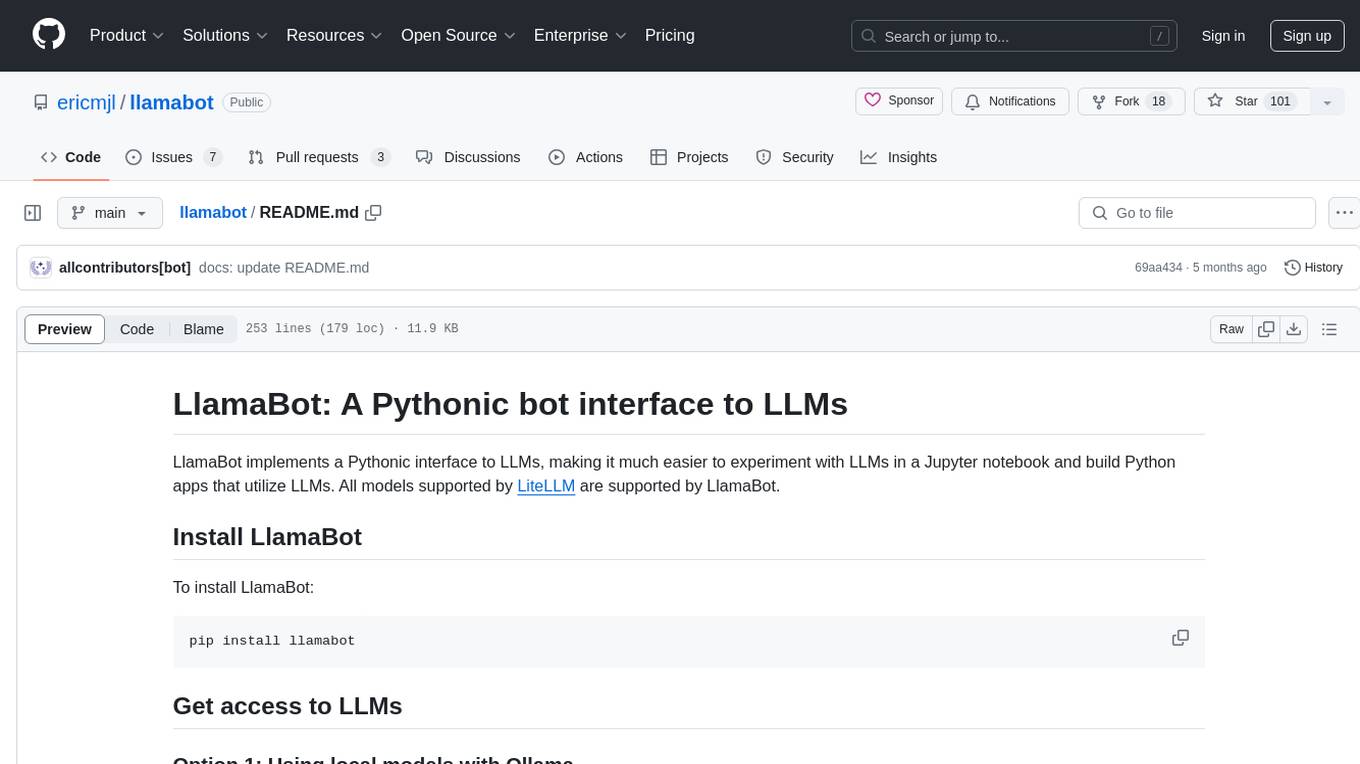
llamabot
LlamaBot is a Pythonic bot interface to Large Language Models (LLMs), providing an easy way to experiment with LLMs in Jupyter notebooks and build Python apps utilizing LLMs. It supports all models available in LiteLLM. Users can access LLMs either through local models with Ollama or by using API providers like OpenAI and Mistral. LlamaBot offers different bot interfaces like SimpleBot, ChatBot, QueryBot, and ImageBot for various tasks such as rephrasing text, maintaining chat history, querying documents, and generating images. The tool also includes CLI demos showcasing its capabilities and supports contributions for new features and bug reports from the community.
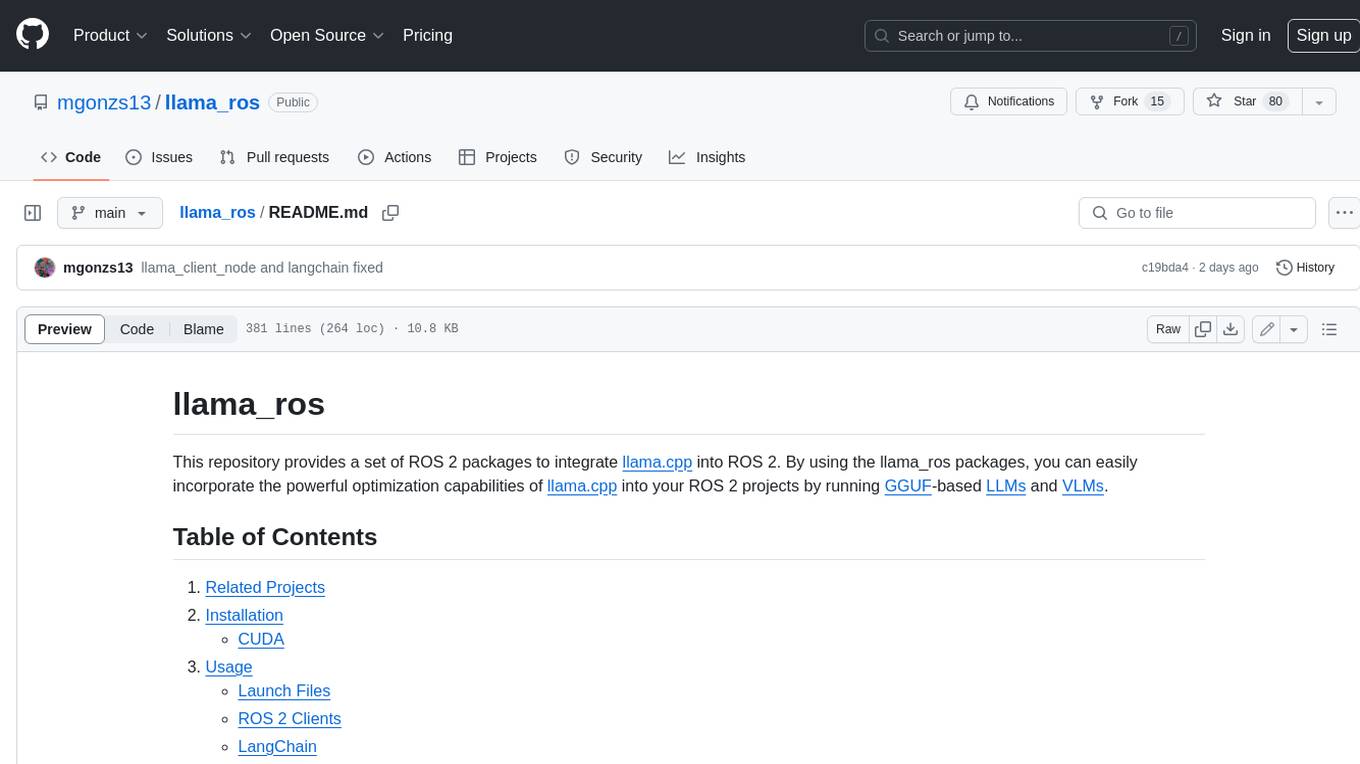
llama_ros
This repository provides a set of ROS 2 packages to integrate llama.cpp into ROS 2. By using the llama_ros packages, you can easily incorporate the powerful optimization capabilities of llama.cpp into your ROS 2 projects by running GGUF-based LLMs and VLMs.
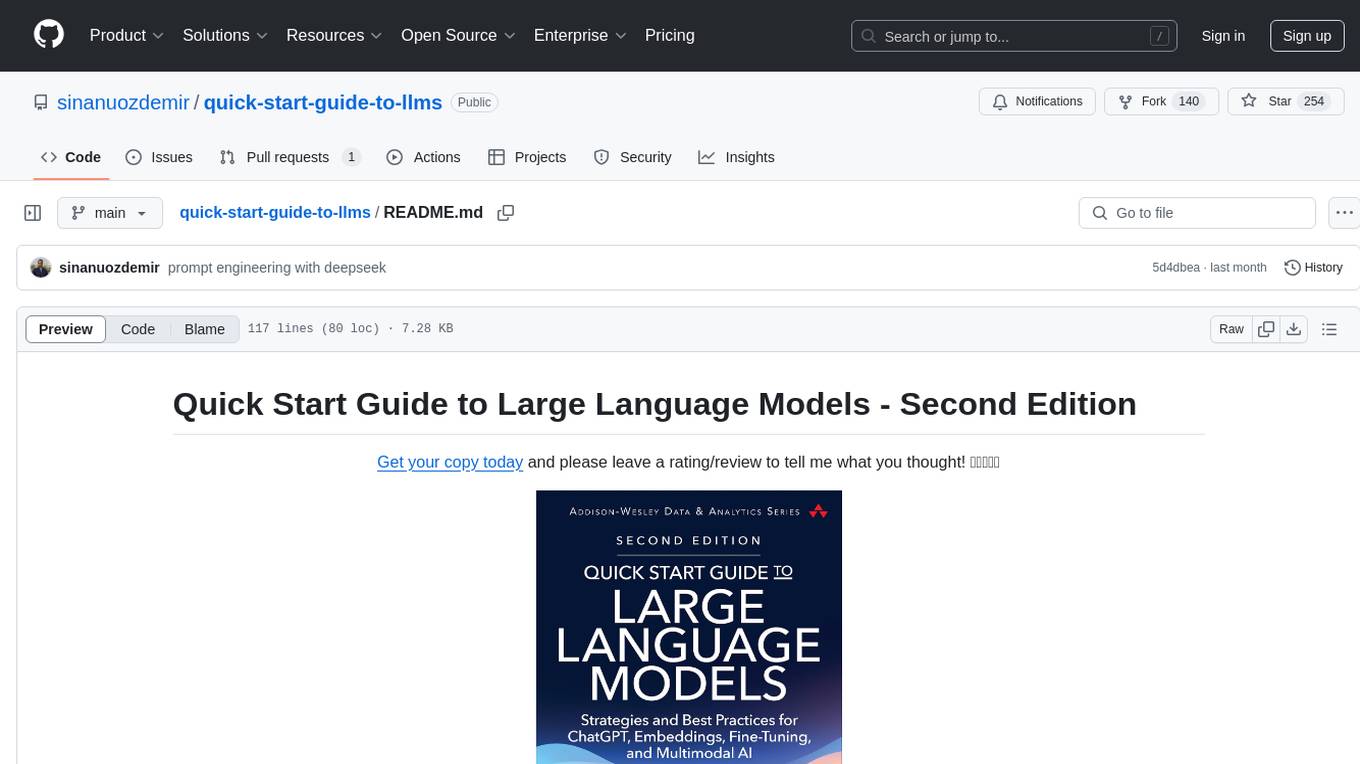
quick-start-guide-to-llms
This GitHub repository serves as the companion to the 'Quick Start Guide to Large Language Models - Second Edition' book. It contains code snippets and notebooks demonstrating various applications and advanced techniques in working with Transformer models and large language models (LLMs). The repository is structured into directories for notebooks, data, and images, with each notebook corresponding to a chapter in the book. Users can explore topics such as semantic search, prompt engineering, model fine-tuning, custom embeddings, advanced LLM usage, moving LLMs into production, and evaluating LLMs. The repository aims to provide practical examples and insights for working with LLMs in different contexts.
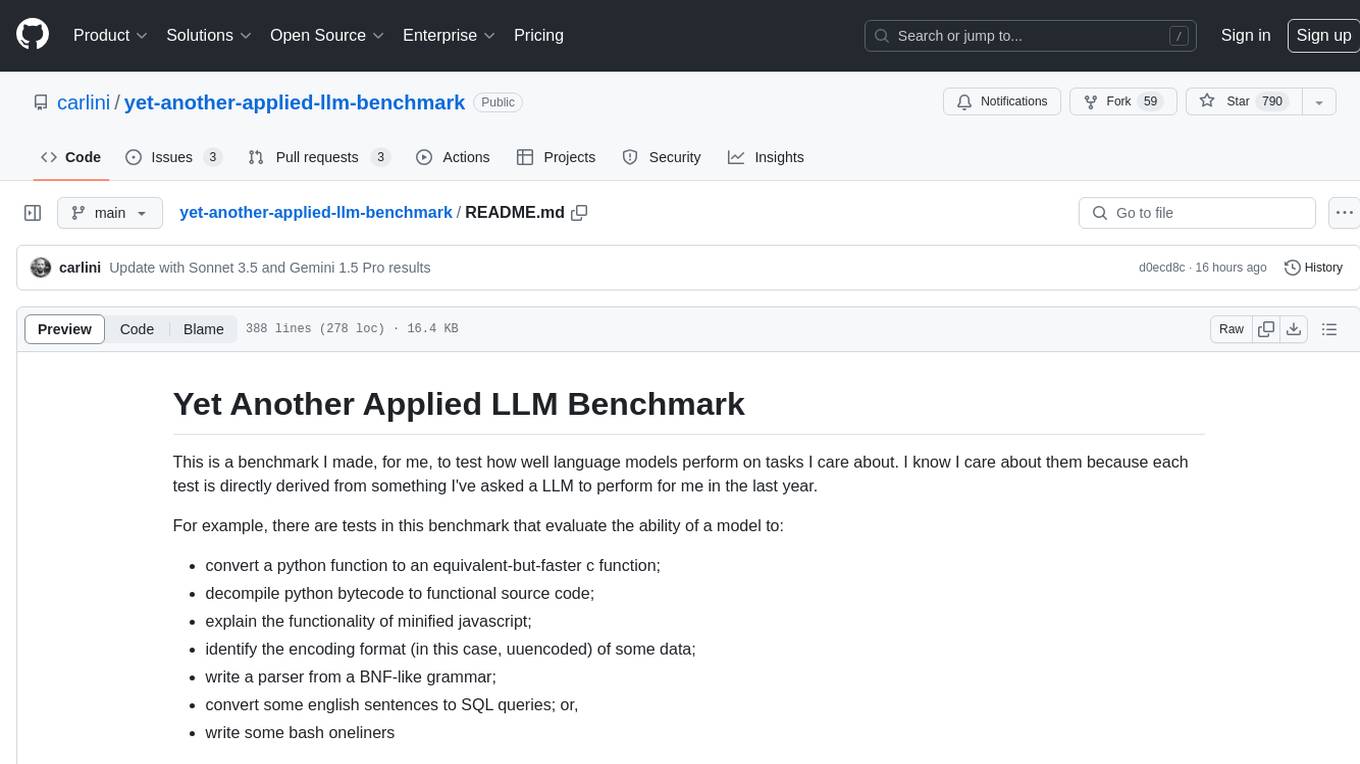
yet-another-applied-llm-benchmark
Yet Another Applied LLM Benchmark is a collection of diverse tests designed to evaluate the capabilities of language models in performing real-world tasks. The benchmark includes tests such as converting code, decompiling bytecode, explaining minified JavaScript, identifying encoding formats, writing parsers, and generating SQL queries. It features a dataflow domain-specific language for easily adding new tests and has nearly 100 tests based on actual scenarios encountered when working with language models. The benchmark aims to assess whether models can effectively handle tasks that users genuinely care about.
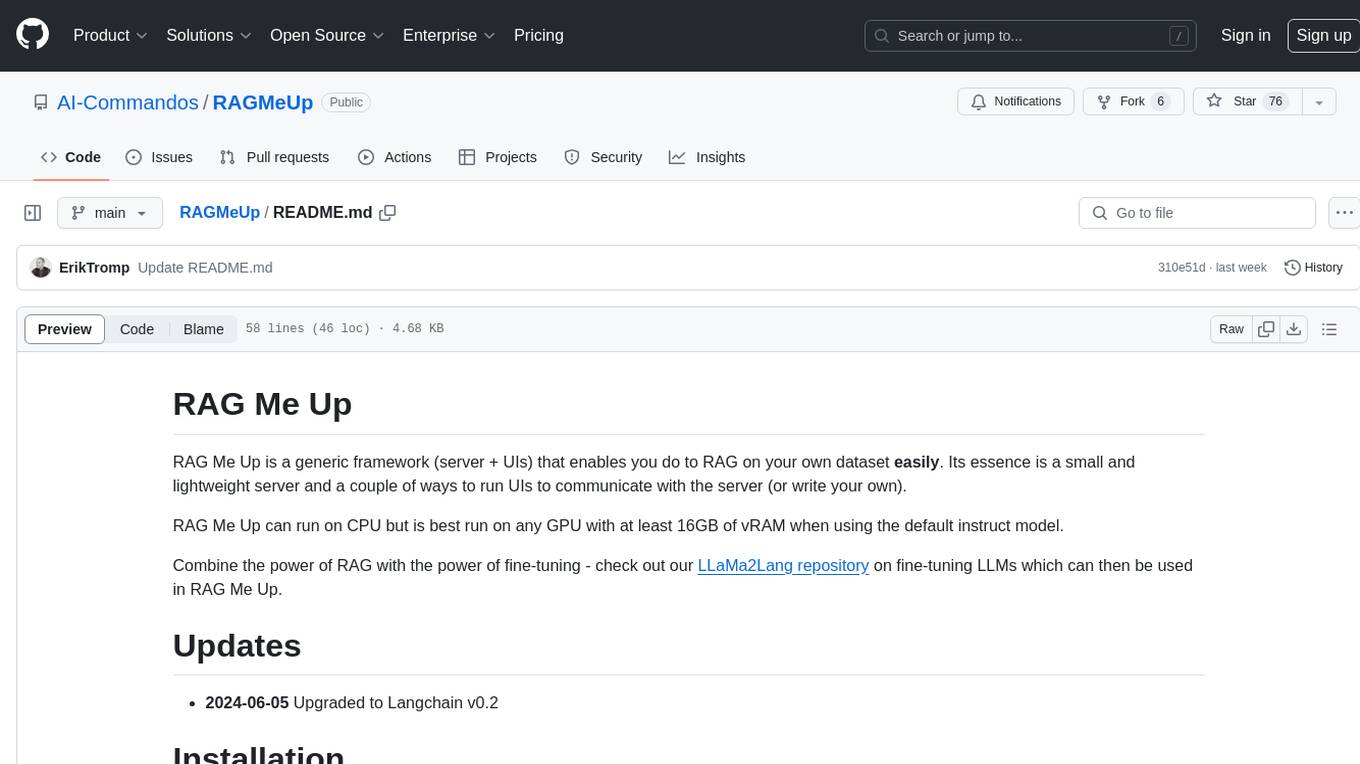
RAGMeUp
RAG Me Up is a generic framework that enables users to perform Retrieve and Generate (RAG) on their own dataset easily. It consists of a small server and UIs for communication. Best run on GPU with 16GB vRAM. Users can combine RAG with fine-tuning using LLaMa2Lang repository. The tool allows configuration for LLM, data, LLM parameters, prompt, and document splitting. Funding is sought to democratize AI and advance its applications.
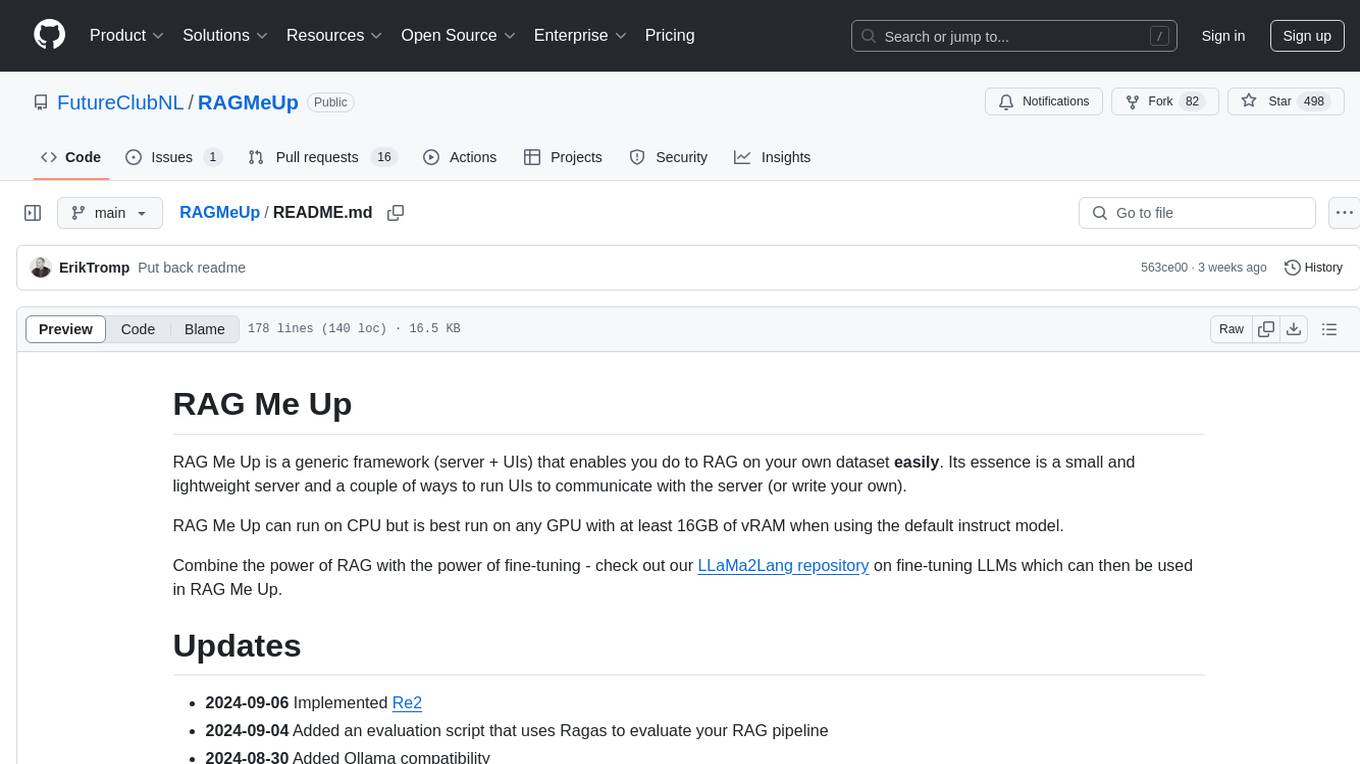
RAGMeUp
RAG Me Up is a generic framework that enables users to perform Retrieve, Answer, Generate (RAG) on their own dataset easily. It consists of a small server and UIs for communication. The tool can run on CPU but is optimized for GPUs with at least 16GB of vRAM. Users can combine RAG with fine-tuning using the LLaMa2Lang repository. The tool provides a configurable RAG pipeline without the need for coding, utilizing indexing and inference steps to accurately answer user queries.

LLamaSharp
LLamaSharp is a cross-platform library to run 🦙LLaMA/LLaVA model (and others) on your local device. Based on llama.cpp, inference with LLamaSharp is efficient on both CPU and GPU. With the higher-level APIs and RAG support, it's convenient to deploy LLM (Large Language Model) in your application with LLamaSharp.
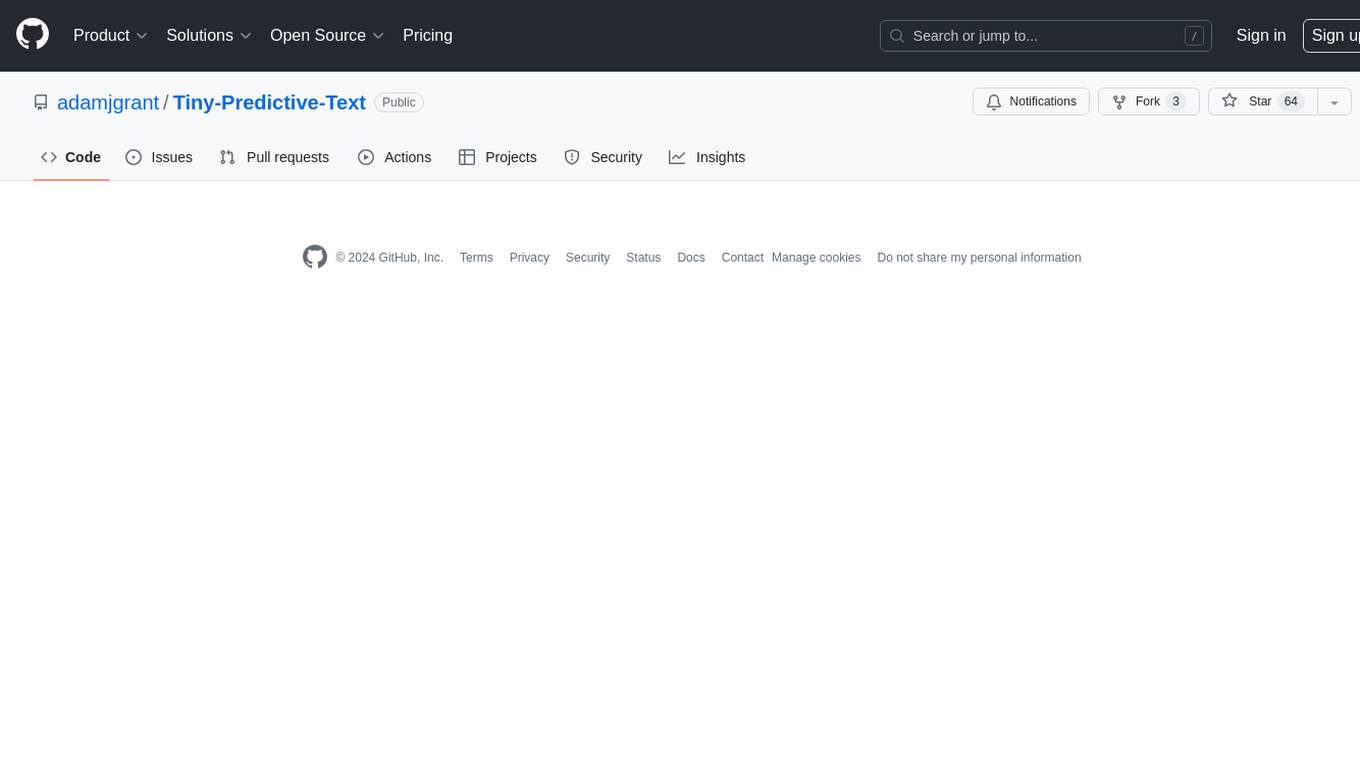
Tiny-Predictive-Text
Tiny-Predictive-Text is a demonstration of predictive text without an LLM, using permy.link. It provides a detailed description of the tool, including its features, benefits, and how to use it. The tool is suitable for a variety of jobs, including content writers, editors, and researchers. It can be used to perform a variety of tasks, such as generating text, completing sentences, and correcting errors.
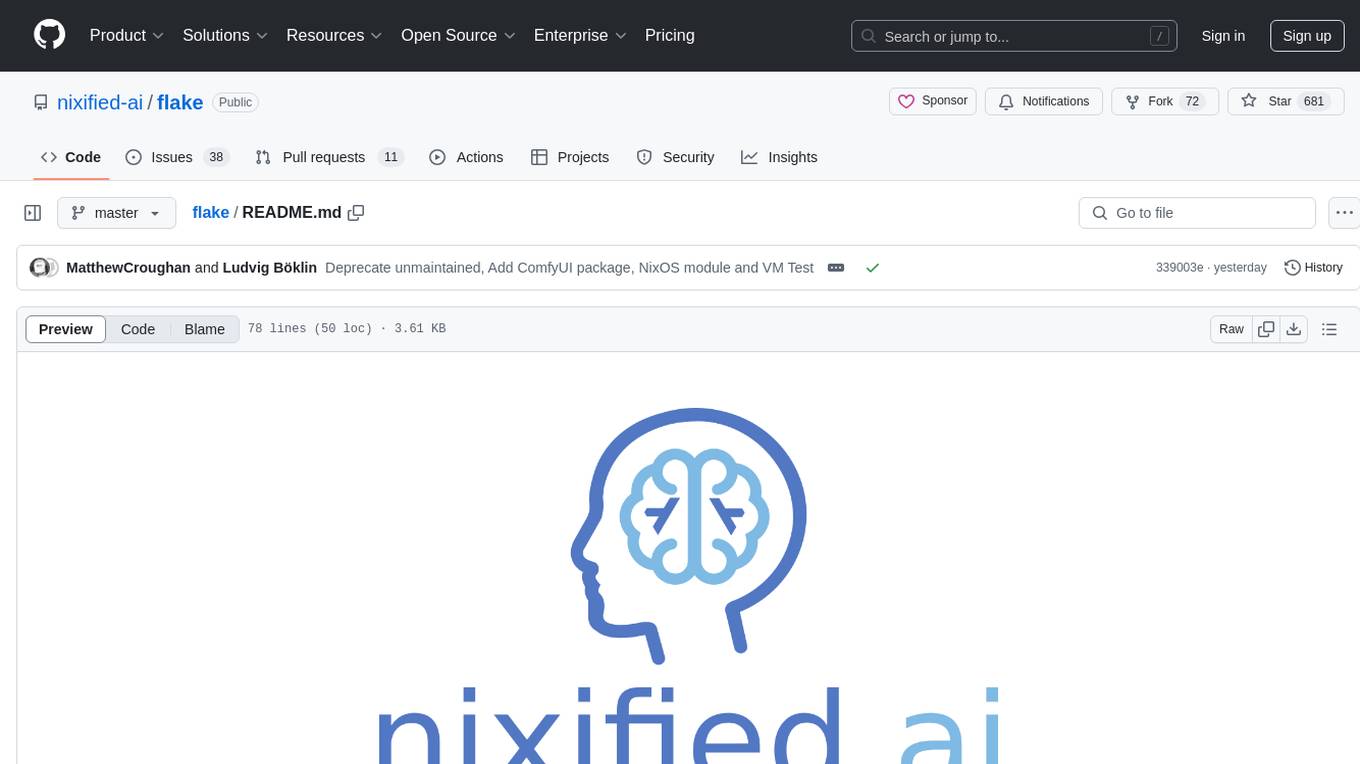
flake
Nixified.ai aims to simplify and provide access to a vast repository of AI executable code that would otherwise be challenging to run independently due to package management and complexity issues. The tool primarily runs on NixOS and Linux, with compatibility on Windows through NixOS-WSL. It can automatically utilize the GPU of the Windows host by setting LD_LIBRARY_PATH in the wrapper script. Users can explore the tool's offerings through the nix repl, with the main outputs including ComfyUI, a modular node-based Stable Diffusion WebUI, and deprecated packages like InvokeAI and textgen. To enable binary cache and save time building packages, users need to trust nixified-ai's binary cache by adding specific lines to their system configuration files.
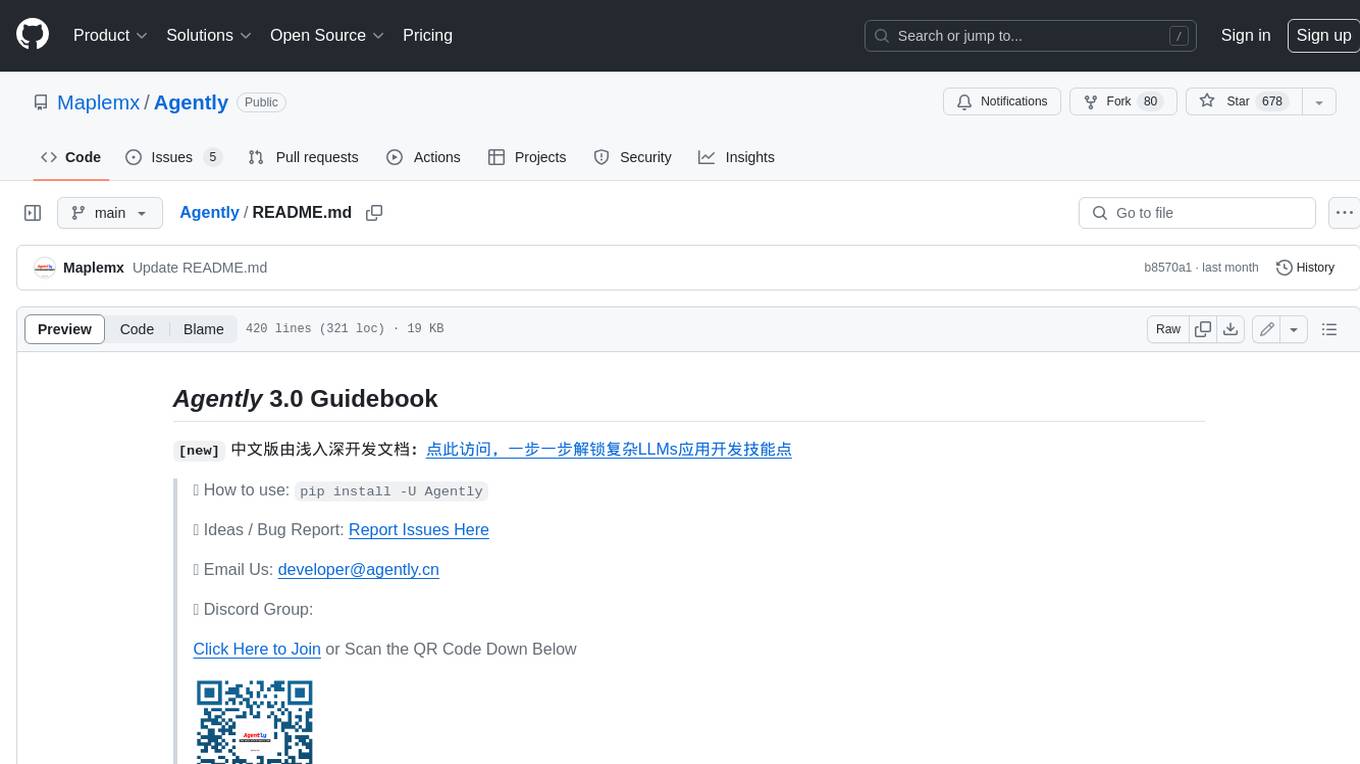
Agently
Agently is a development framework that helps developers build AI agent native application really fast. You can use and build AI agent in your code in an extremely simple way. You can create an AI agent instance then interact with it like calling a function in very few codes like this below. Click the run button below and witness the magic. It's just that simple: python # Import and Init Settings import Agently agent = Agently.create_agent() agent\ .set_settings("current_model", "OpenAI")\ .set_settings("model.OpenAI.auth", {"api_key": ""}) # Interact with the agent instance like calling a function result = agent\ .input("Give me 3 words")\ .output([("String", "one word")])\ .start() print(result) ['apple', 'banana', 'carrot'] And you may notice that when we print the value of `result`, the value is a `list` just like the format of parameter we put into the `.output()`. In Agently framework we've done a lot of work like this to make it easier for application developers to integrate Agent instances into their business code. This will allow application developers to focus on how to build their business logic instead of figure out how to cater to language models or how to keep models satisfied.
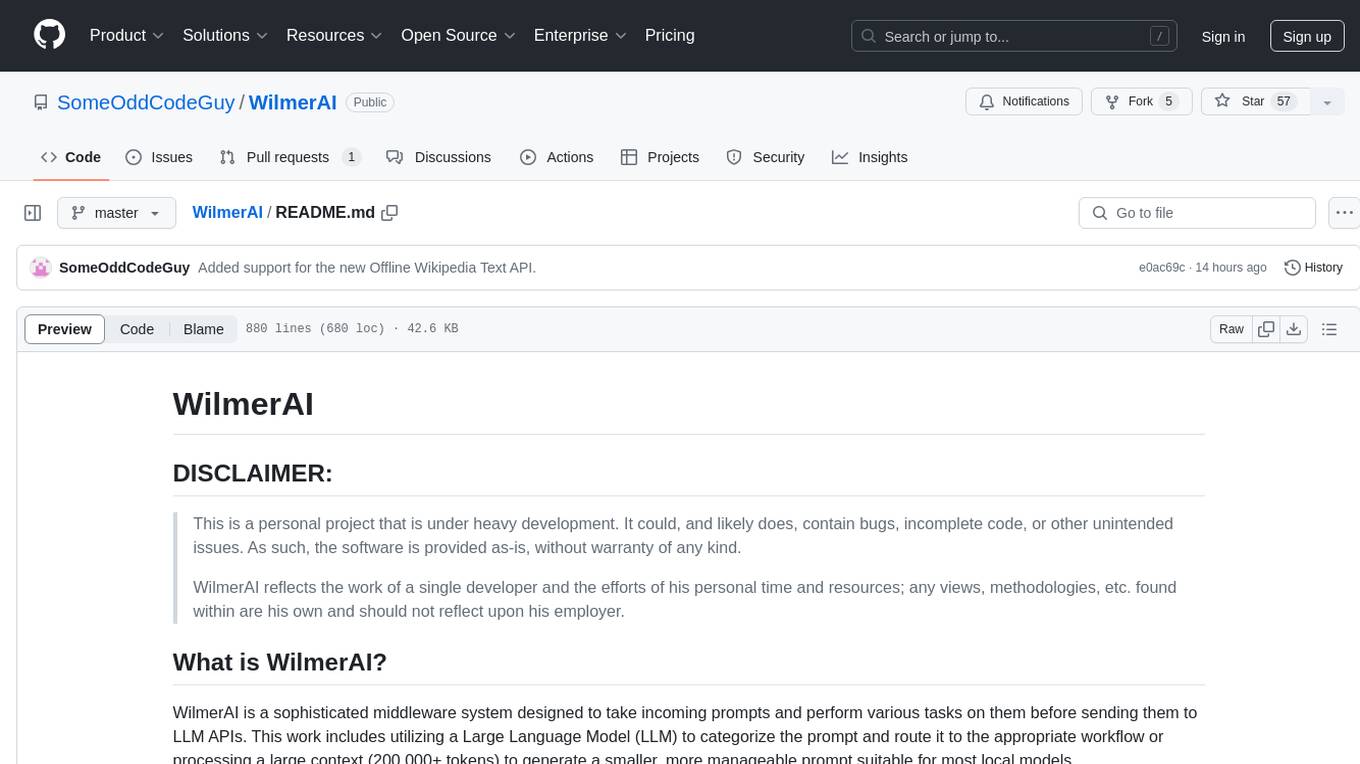
WilmerAI
WilmerAI is a middleware system designed to process prompts before sending them to Large Language Models (LLMs). It categorizes prompts, routes them to appropriate workflows, and generates manageable prompts for local models. It acts as an intermediary between the user interface and LLM APIs, supporting multiple backend LLMs simultaneously. WilmerAI provides API endpoints compatible with OpenAI API, supports prompt templates, and offers flexible connections to various LLM APIs. The project is under heavy development and may contain bugs or incomplete code.
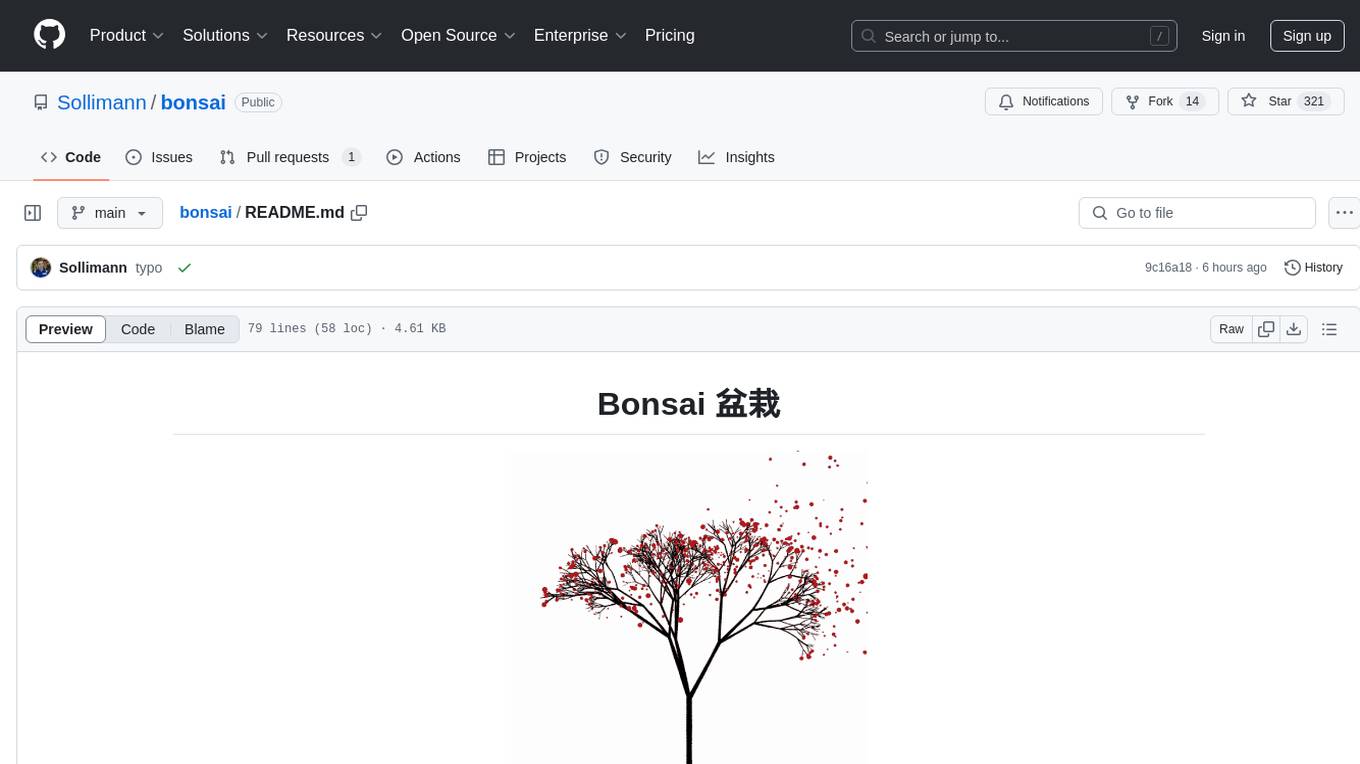
bonsai
Bonsai is a Rust implementation of Behavior Trees, a data structure for setting rules on how behaviors occur and execute in a modular and reactive way. It is crucial in applications like AI and Robotics. Bonsai provides efficient ways to create complex systems using Behavior Trees, allowing users to define processes, conditions, and actions to build intelligent and adaptive systems.
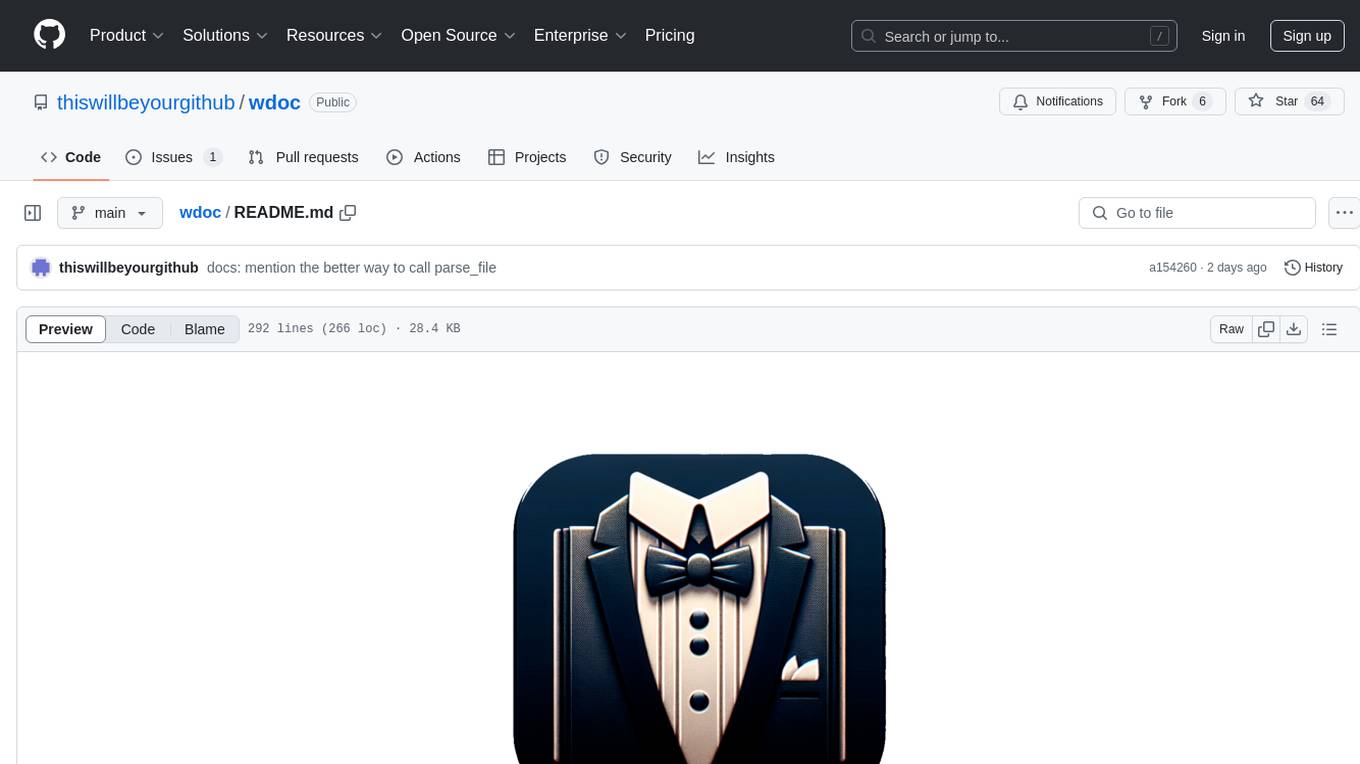
wdoc
wdoc is a powerful Retrieval-Augmented Generation (RAG) system designed to summarize, search, and query documents across various file types. It aims to handle large volumes of diverse document types, making it ideal for researchers, students, and professionals dealing with extensive information sources. wdoc uses LangChain to process and analyze documents, supporting tens of thousands of documents simultaneously. The system includes features like high recall and specificity, support for various Language Model Models (LLMs), advanced RAG capabilities, advanced document summaries, and support for multiple tasks. It offers markdown-formatted answers and summaries, customizable embeddings, extensive documentation, scriptability, and runtime type checking. wdoc is suitable for power users seeking document querying capabilities and AI-powered document summaries.
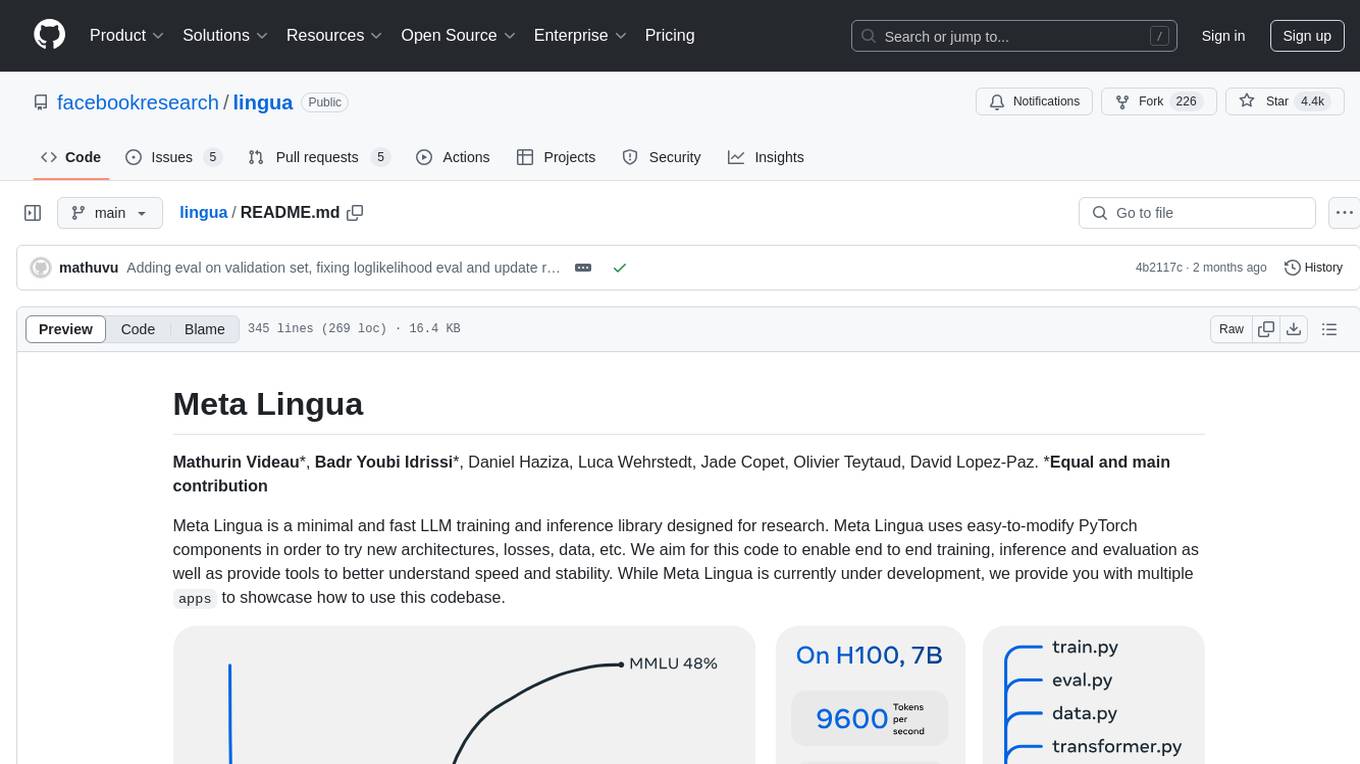
lingua
Meta Lingua is a minimal and fast LLM training and inference library designed for research. It uses easy-to-modify PyTorch components to experiment with new architectures, losses, and data. The codebase enables end-to-end training, inference, and evaluation, providing tools for speed and stability analysis. The repository contains essential components in the 'lingua' folder and scripts that combine these components in the 'apps' folder. Researchers can modify the provided templates to suit their experiments easily. Meta Lingua aims to lower the barrier to entry for LLM research by offering a lightweight and focused codebase.

appworld
AppWorld is a high-fidelity execution environment of 9 day-to-day apps, operable via 457 APIs, populated with digital activities of ~100 people living in a simulated world. It provides a benchmark of natural, diverse, and challenging autonomous agent tasks requiring rich and interactive coding. The repository includes implementations of AppWorld apps and APIs, along with tests. It also introduces safety features for code execution and provides guides for building agents and extending the benchmark.
